#from the late 1800s to mid 1900s
Text
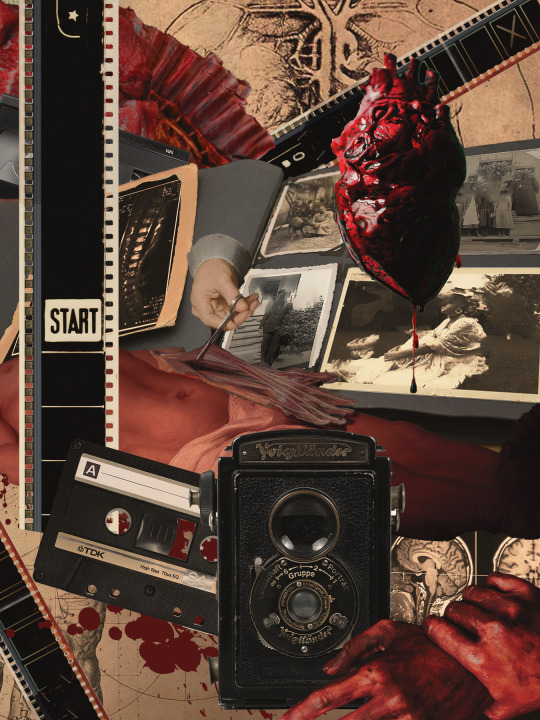
I scrutinize each photo
Each letter, each tape, each story
Digging further and further back through history
Hoping to pinpoint
Where the weight on my shoulders originated
Who carried it first
How many generations of suffering do I hold
How many ghosts are tearing at my flesh
How many generations of knowledge have I been denied
How much has been lost
How much will be lost
As my fingers slowly erode paper
As obsession wears through the tapes
As each memory slowly becomes unrecognizable
The film strips undulate like intestines
The dust and ink sticking to my hands like flecks of gore
When you cut into my gut
Is it blood that spills out
Or history?
Salamatullah Eldritch (2022), Archival Violence, Mnemonic Gore [digital collage]
[Image attribution & sources for images used]
#Eldritch IT Speaks#Digital Collage#blood tw#I'm planning on making an story based on this#anyways this is all just. musings on generational trauma. partially brought from my family finding photos#from the late 1800s to mid 1900s#along with my own struggles w/ generational trauma and memory#i usually don't make collages and the last time I did was while I was in a psychiatric treatment center and it was made of just words#im usually not good with like. making something like this. i struggle to abandon symmetry and weird rules in my head#so im kinda proud that I managed to let go of that to make this#ALSO. lowkey I am inspired to do this collage n using gore bcuz of Yah Yah Scholfield#eldritch it writes
248 notes
·
View notes
Text
disclaimer: yes, I am complaining about cheating in media. Because, yes, writers have the freedom to create what they want but if the morality in creation is free for all forms of media, but no piece of art is exempt from criticism, and that includes criticism on personal moral grounds. I betcha if I said Harry Potter is good, actually, everyone on here would flood my blog telling me I am wrong because of the author's intense prejudice. That being said, I am criticizing cheating in fiction, If you don't like that, don't interact
So often lately I see period dramas where the husband cheats on the wife (ex. Poldark, The Essex Serpent, Queen Charlotte, The Great)...and not only do I despise the cheating trope with every fibre of my being to where I get panic attacks when I consume the media...but specifically with period dramas...
Do these writers not understand the greater implications of a husband cheating on a wife during these periods? More than just the humiliation and heartbreak in the case of a loving, good marriage just like it is today.
In the Western world, probably until certain laws were enacted in the 1900's, if a woman married a man, she was legally his property. She had no legal identity under him. She was financially dependent on him. Any wages she made would automatically go to her husband. Her children were also not legally her children- they belonged to the father. If the husband died, even if the wife was still alive, the children were legally considered orphans.
Women could only rarely gain a divorce from their husbands. In England in the mid-1800's specifically, if a wife divorced a husband she had to prove he had to not only cheat but also be physically abusive, incestuous, or commit bestiality. On the other hand, a husband could divorce a wife just for being unfaithful. Because, kids, there were sexual double standards.
Getting married was often the endgame for a lot of women during that time. Sometimes you couldn't make your own living enough- marriage was a way to secure your entire future financially, with more than enough money to get by. If you were a spinster and middle class, you could get by with a job. But if you are an upper-class lady, the one thing a lady does not do is get a job and work. So upper-class spinsters basically were dependent on their families to get by (ex. Anne Elliott in Persuasion faces this with her own toxic family). As strange as it sounded today, marriage gave them some freedom to go about since a husband could be persuaded sometimes more easily than a father and one had a different home, their servants, etc. A husband was your foundation entirely for being a part of society, and standing up as your own woman.
So if a husband cheated on a wife, that was a threat to take all of that away.
He could give a lot of money that could be used to support his wife and children to the mistress. He could completely abandon said wife for the mistress. And since the wife legally couldn't get a job as he still lived, she would be dependent on any money he would said- and that is IF he sent over any money.
He could take her to court and publicly humiliate her to get a divorce away from her (look up the separation of Charles and Kate Dickens, he would call her mentally ill and say her cooking was bad and that she was having more children than they could keep up with all while having an affair and divorcing her to be with the misteress). And even if the wife was the nicest, more proper, goodest, more rule-abiding never-keeping-a-toe-out-of-line lady in town...as a man, the law was default on his side (look up Caroline Norton's A Letter to the Queen which details exactly that, the poor woman had her earnings as a writer taken by her husband and was denied access to her children from said husband)
So yeah...even if there was "no love" between them (and anytime the wife is portrayed as too boring or too bitchy so He HaS tO cHeAt is brought up is...pretty victim blamey)
So yeah. Period drama writers, if you have the husband have an affair ...just consider the reality of these things and address them, maybe punish the husband for once (*gasp* men facing consequences for their actions?!?!!), and if not, just please find other options and other tropes and devices for once.
#tw: cheating#cw: cheating#period dramas#feminism#history#books#tv shows#movies#television#tv series#costume drama#period film#queen charlotte#the essex serpent#the great#poldark
352 notes
·
View notes
Text
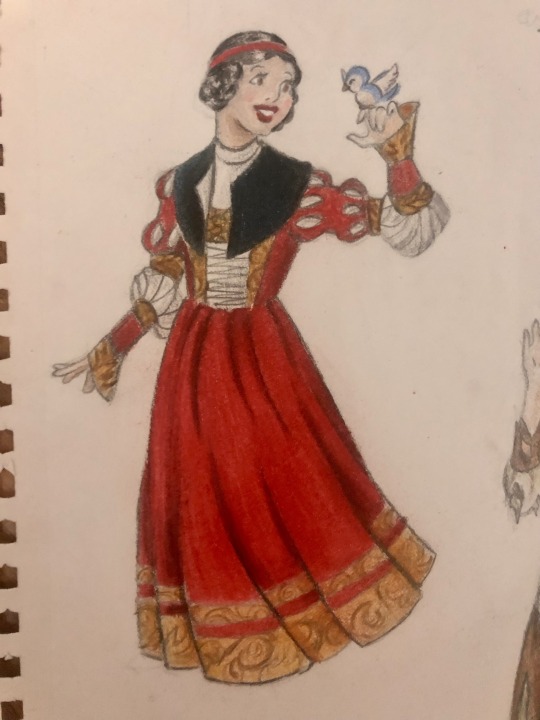
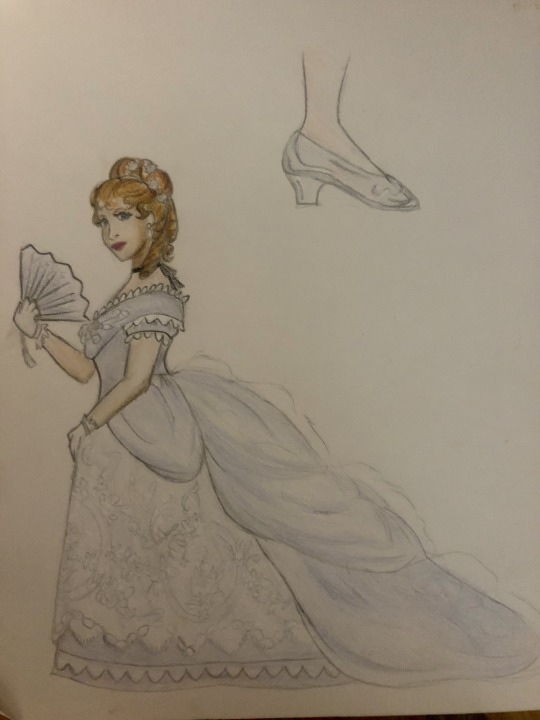
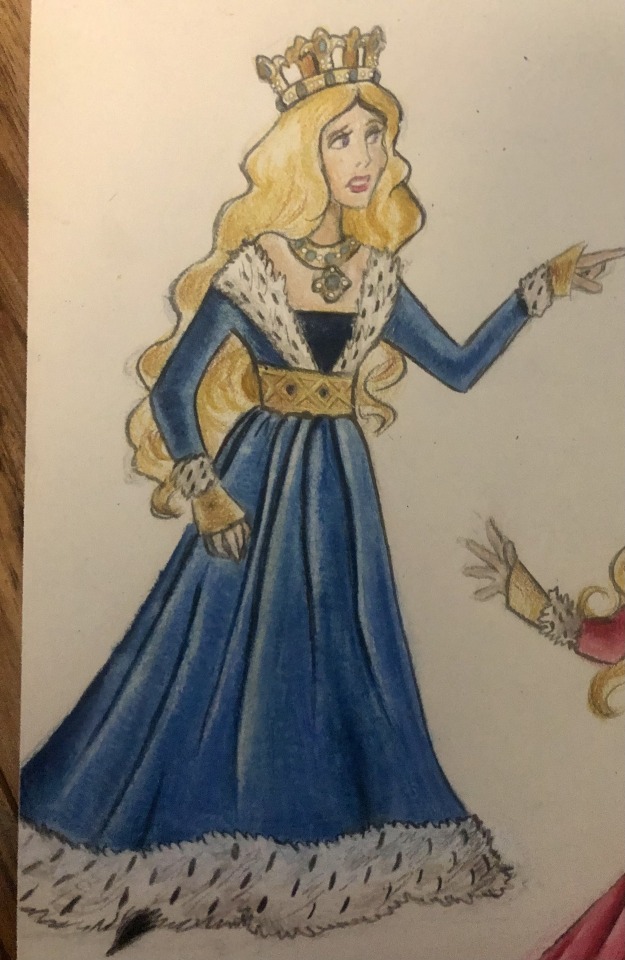
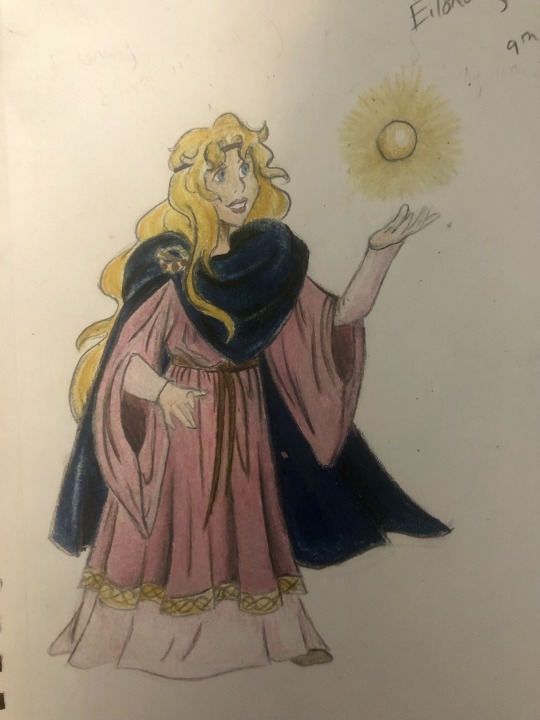
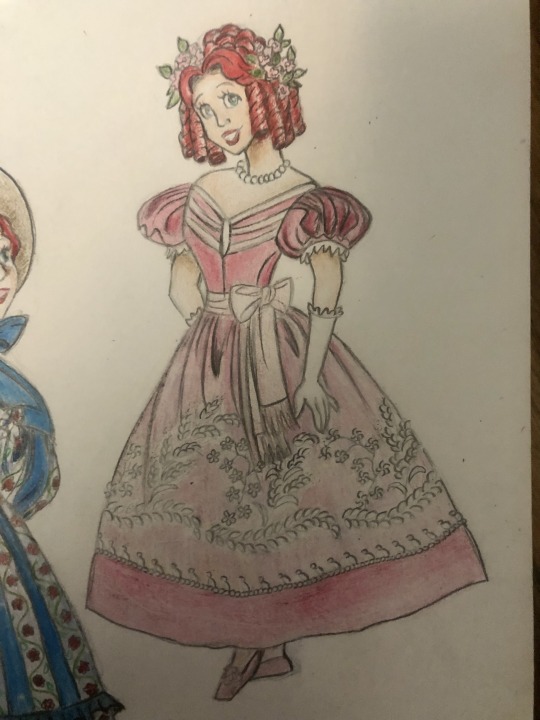
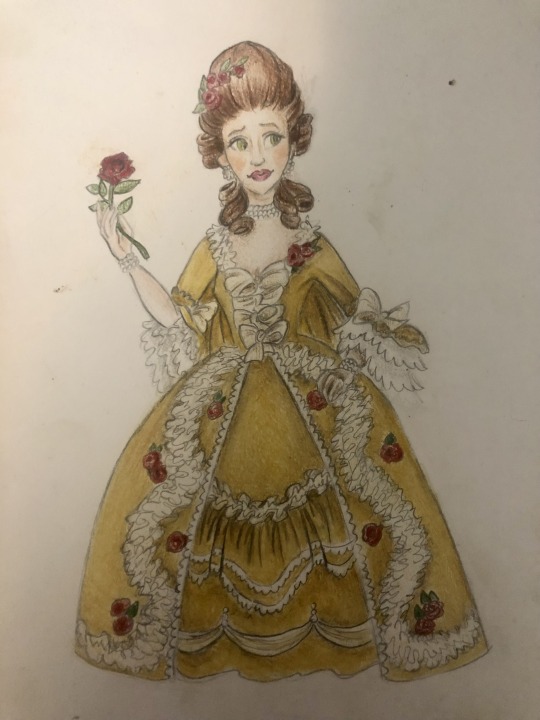
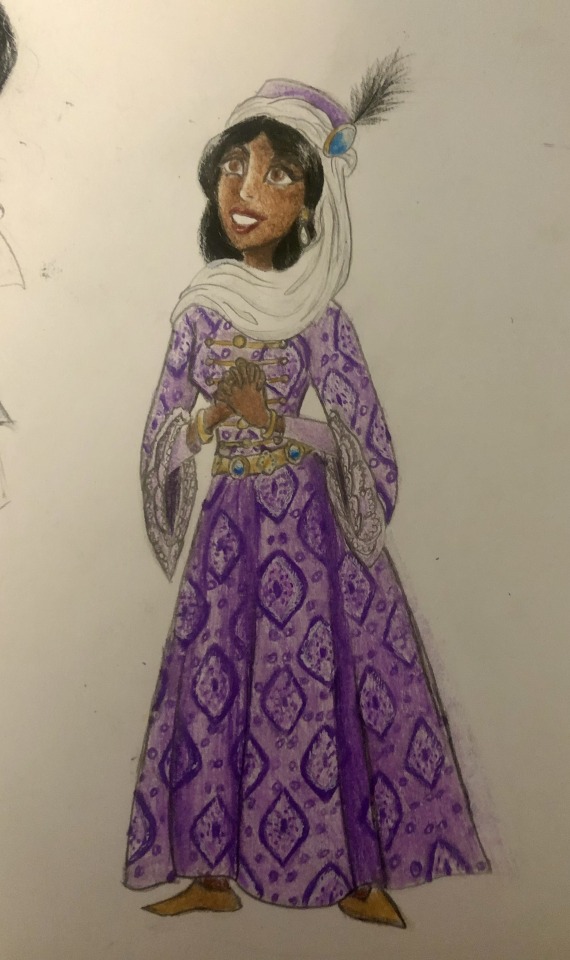
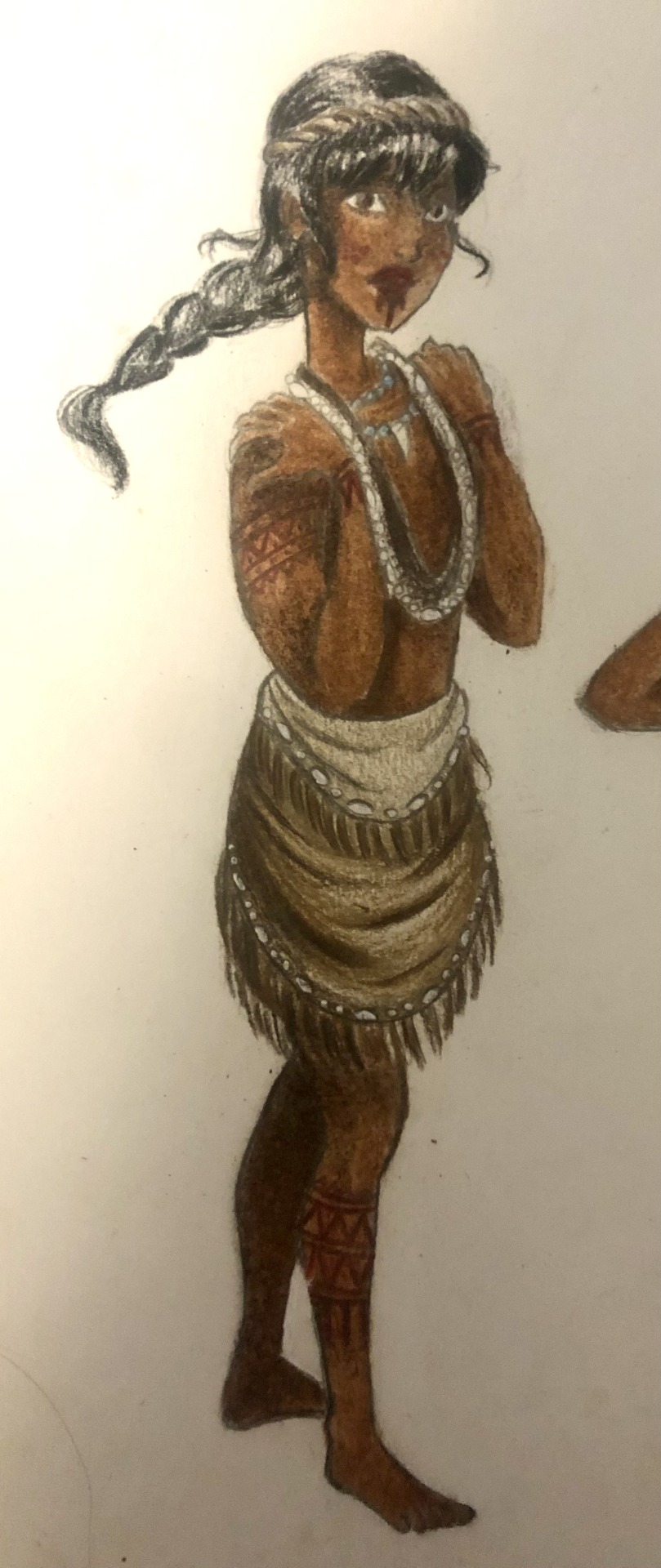
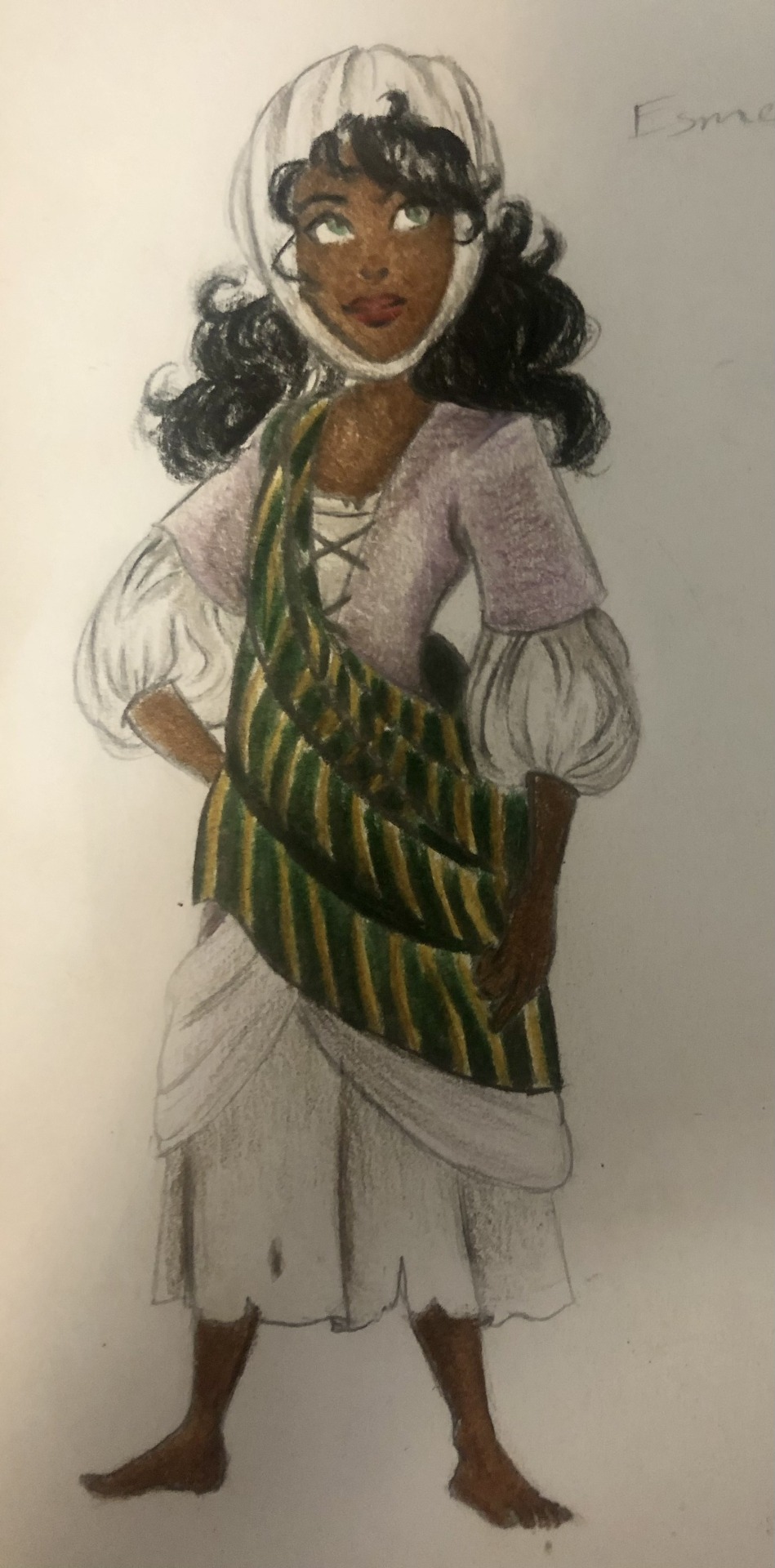
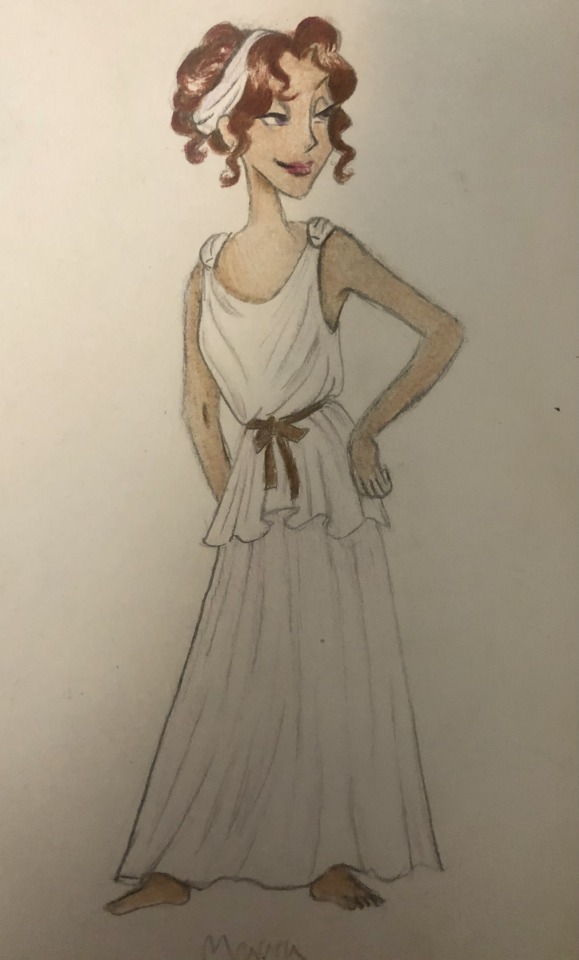
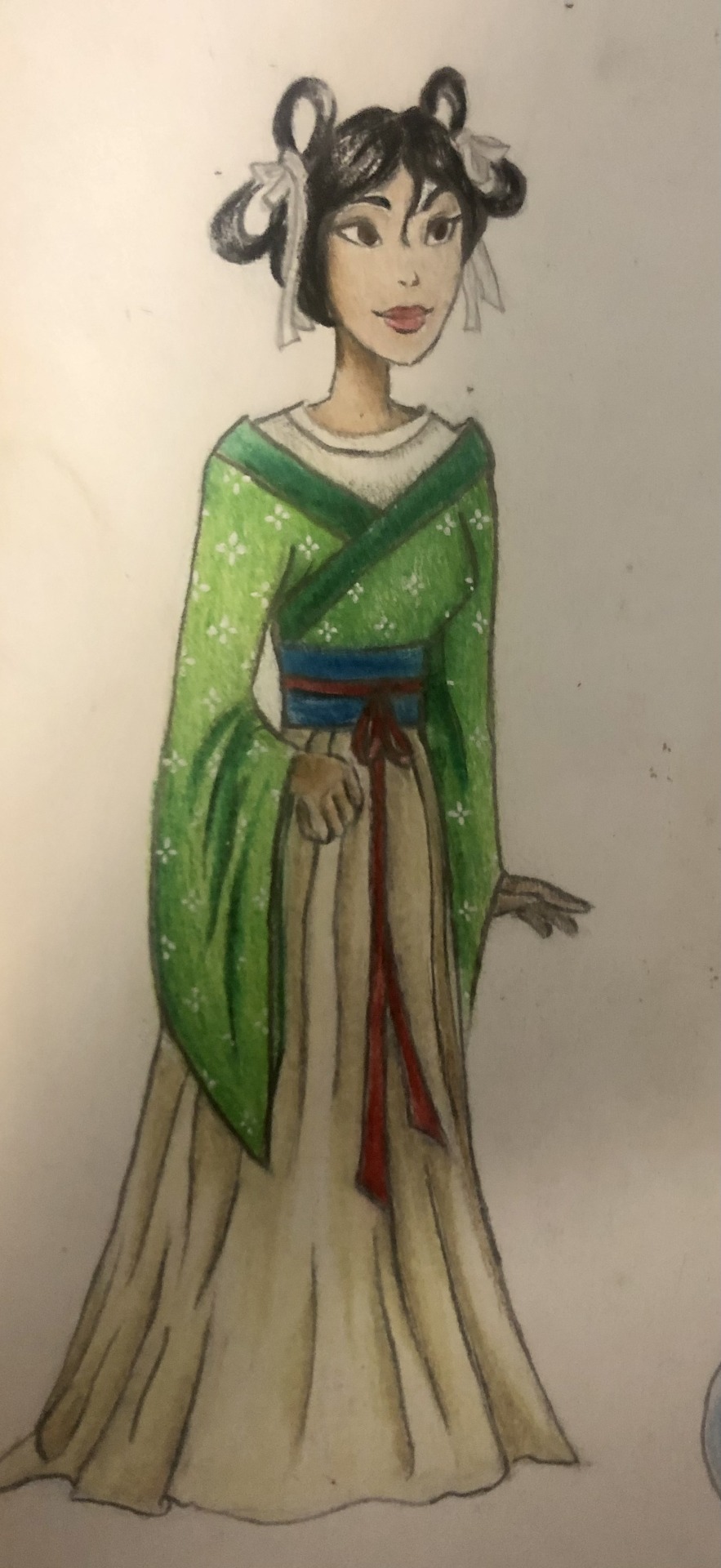
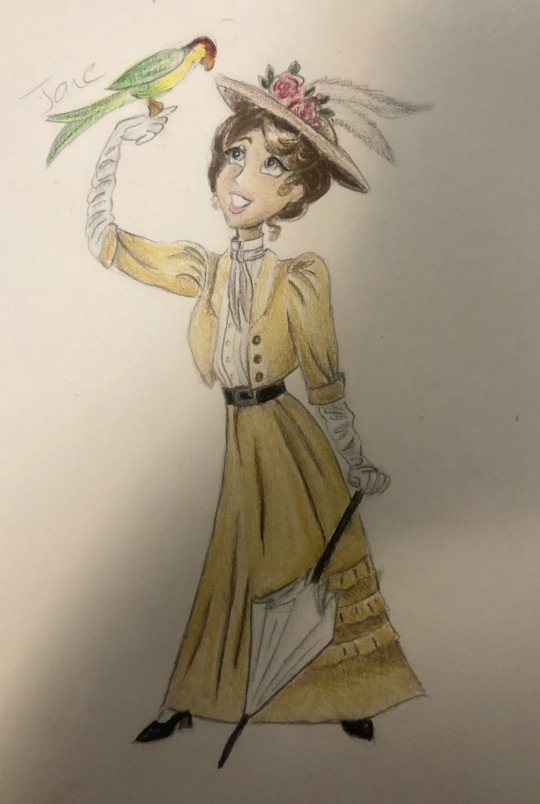
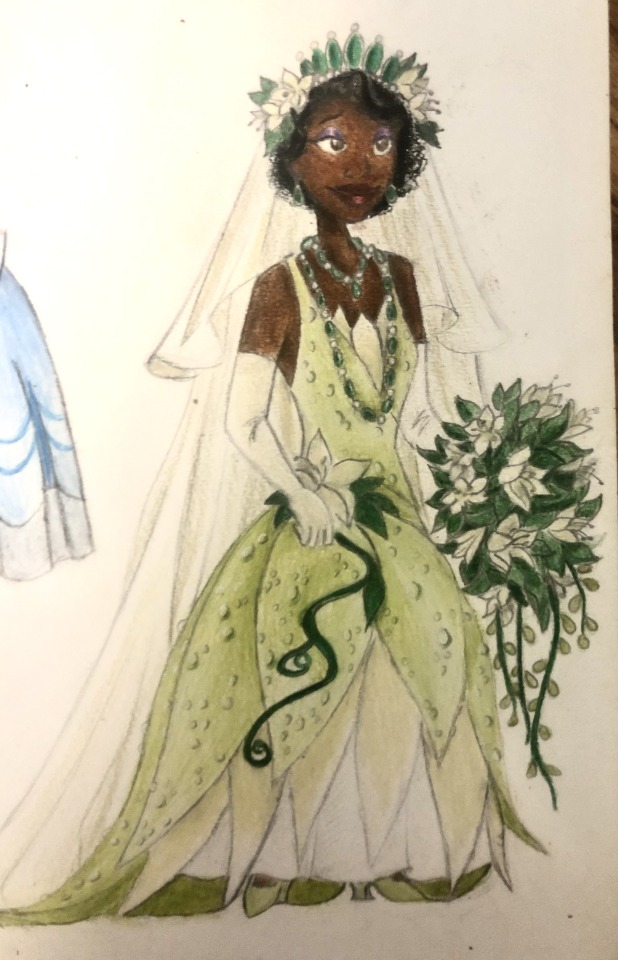

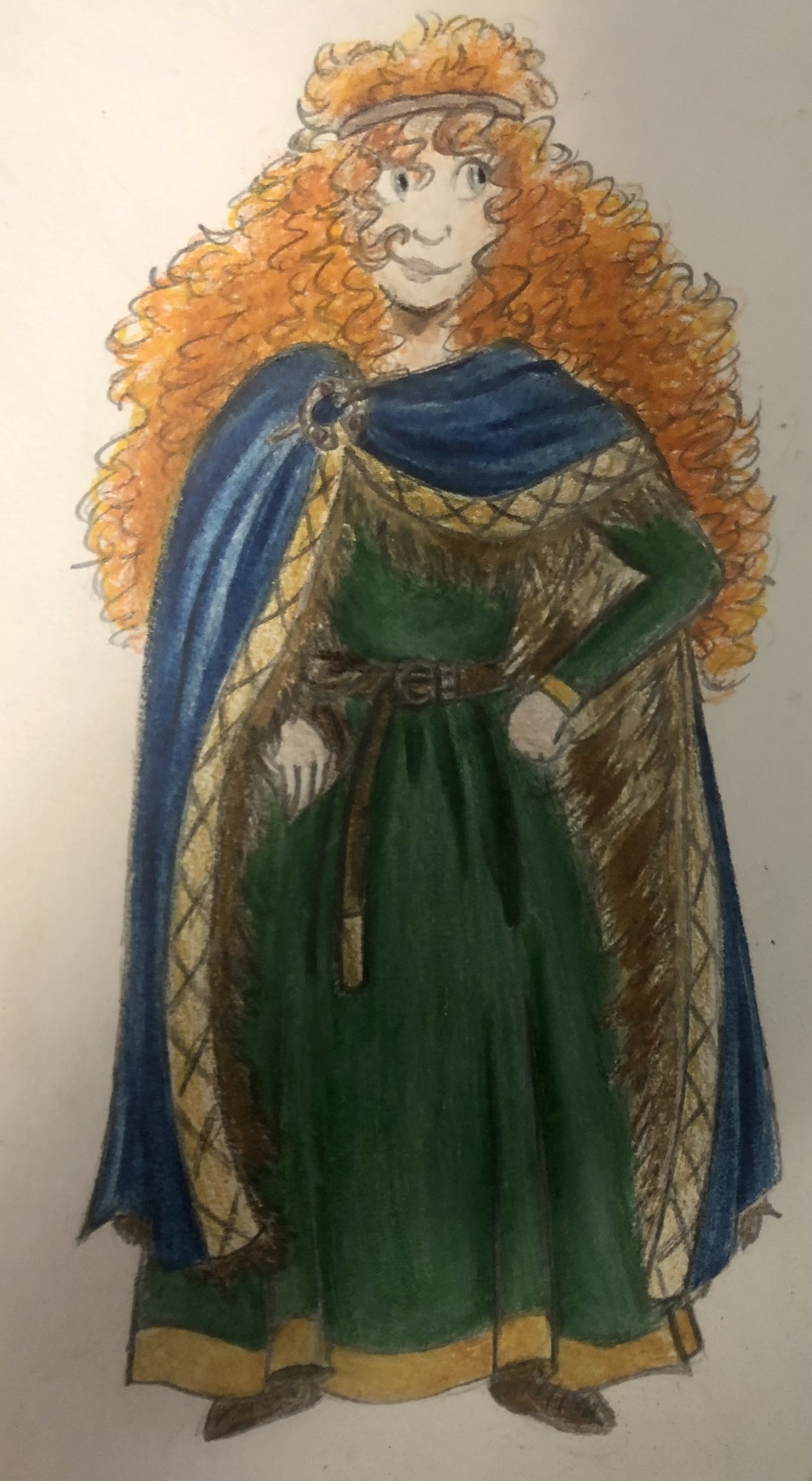
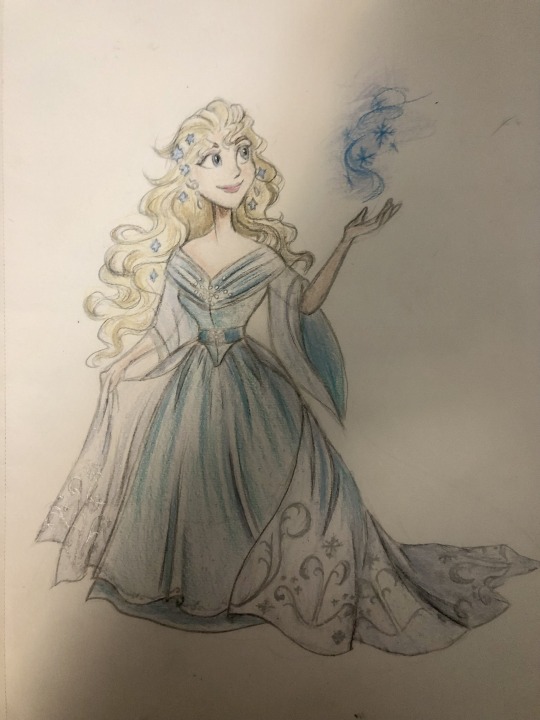
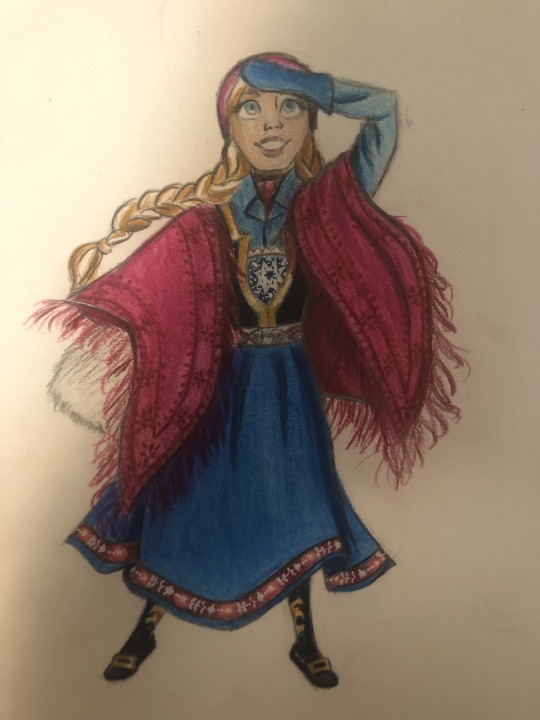
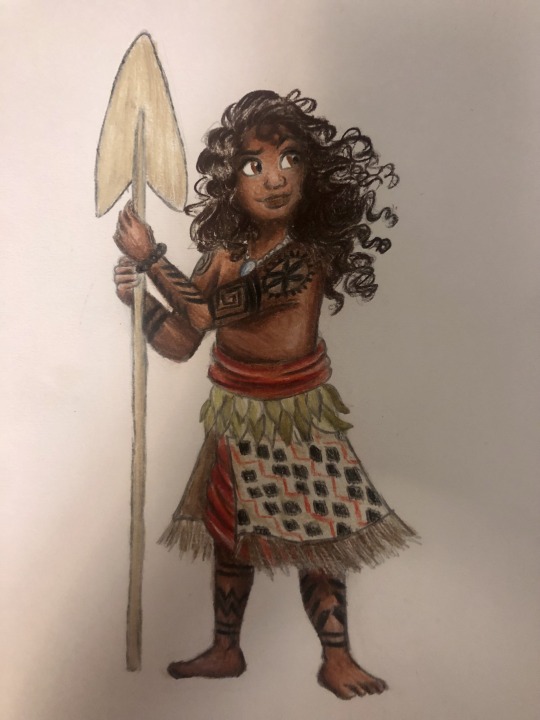
Thought I’d do a little art throwback with my own historically accurate (well mostly) takes on Disney princesses and heroines, which I did from 2021 to 2022! Included in this series are:
Snow White - early 16th century Germany (then part of the Holy Roman Empire)
Cinderella - late 1860s-early 1870s France
Aurora - mid 15th century France
Eilonwy - 8th-10th century (present day) Wales
Ariel - 1830s Mediterranean Europe (maybe Italy)
Belle - 1760s-1770s France
Jasmine - 16th century Arabian Peninsula during the Ottoman Empire
Pocahontas - 1607 Virginia, (present day) United States of America
Esmeralda - 1480s France (Romani garb)
Megara - Classical period of Ancient Greece (c. 5th-4th centuries BCE)
Mulan - Wei Dynasty China (386-535 AD)
Jane - 1900s England
Tiana - late 1920s New Orleans, Louisiana, USA
Rapunzel - 1790s-1800s Germany
Merida - 10th-11th century (present day) Scotland
Elsa - late 1830s-early 1840s Norway
Anna - same period as Elsa (duh)
Moana - ancient Polynesian Islands (c. 1st century BCE)
I had so much fun drawing these, as well as doing the research for each one! I actually drew most of the outfits each one wears (in their first movies) but they're waaaaay down further in my blog.
I'm planning to do a digital redo of these someday, as well as do my own historical spins on other characters I haven't done yet.
Which one is your favorite?
Commissions info
#my art#angie's scribbles#disney#disney princess#disney princesses#disney heroines#disney girls#disney ladies#historical disney#historically accurate disney#historical fashion#snow white#snow white and the seven dwarfs#snow white 1937#cinderella#cinderella 1950#princess aurora#aurora#sleeping beauty#sleeping beauty 1959#eilonwy#princess eilonwy#the black cauldron#ariel#the little mermaid#the little mermaid 1989#belle#beauty and the beast#beauty and the beast 1991#jasmine
147 notes
·
View notes
Text

Treat #2 : The Reformer
This treat is a set inspired by the Dress reform movement (a bit of the Aesthetic movement too, lots of overlap between these two) from the 1895 to the late 1900s.
More pics and download below
It includes the following CC items :
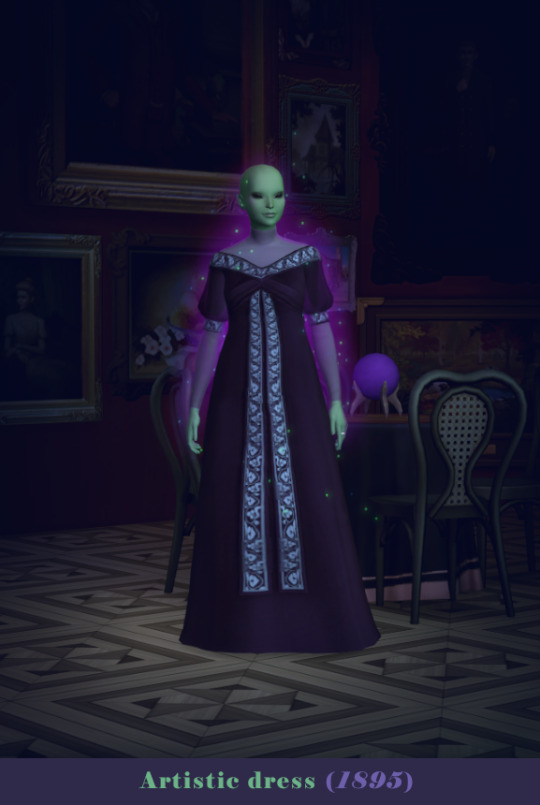


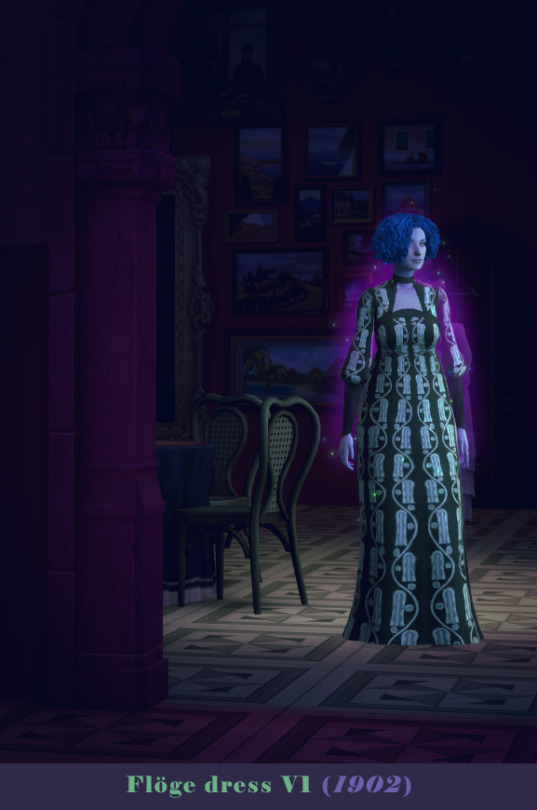

Like the Aesthetic movement, the Reform dress movement dates back to the mid 1800's. It aimed at making women garments less constricting (for reasons varying from praticality, political leanings, supposed health downsides of corsets...). It was linked to feminism especially at the start and gave birth to the bloomers in 1851 for example.
Reform dress usually involved making it so that the main weight of the clothing would be carried by the shoulders and torso instead of solely the waist and thus get rid of the corset and masses of underskirts, to establish a "more practical type of dress that would facilitate a physical and productive life". This resulted most times in flowy dress, usually tea gowns. Like previously mentionned there's a big overlap between reform and aesthetic dresses since the medieval and antique (and even sometimes regency) influences fited the less structured reform dress silhouette of the late 1800's / early 1900's.
Once again this type of clothing wasn't well considered by the society at large, it took hold in specific artistic spheres such as the one surrounding the Wiener Werksträtte (a viennese artist association of which Emilie Flöge was a part of, the artwork is truly fascinating and very influencial look it up !).
This type of dress was so unconventional that apparently, the painter Henri de Toulouse Lautrec (who might I add painted prostitutes and such on the daily) was scandalised by Maria Sèthe Van de Velde's appearance when she welcomed him in a tea gown (see the blue tea gown below for reference) which he mistook for a dressing gown. I feel like this little anecdote helps to put things into perspective.
———————————————————————————
Download : dropbox — simfileshare
———————————————————————————
And if you’re curious here were my main visuals references for this set :
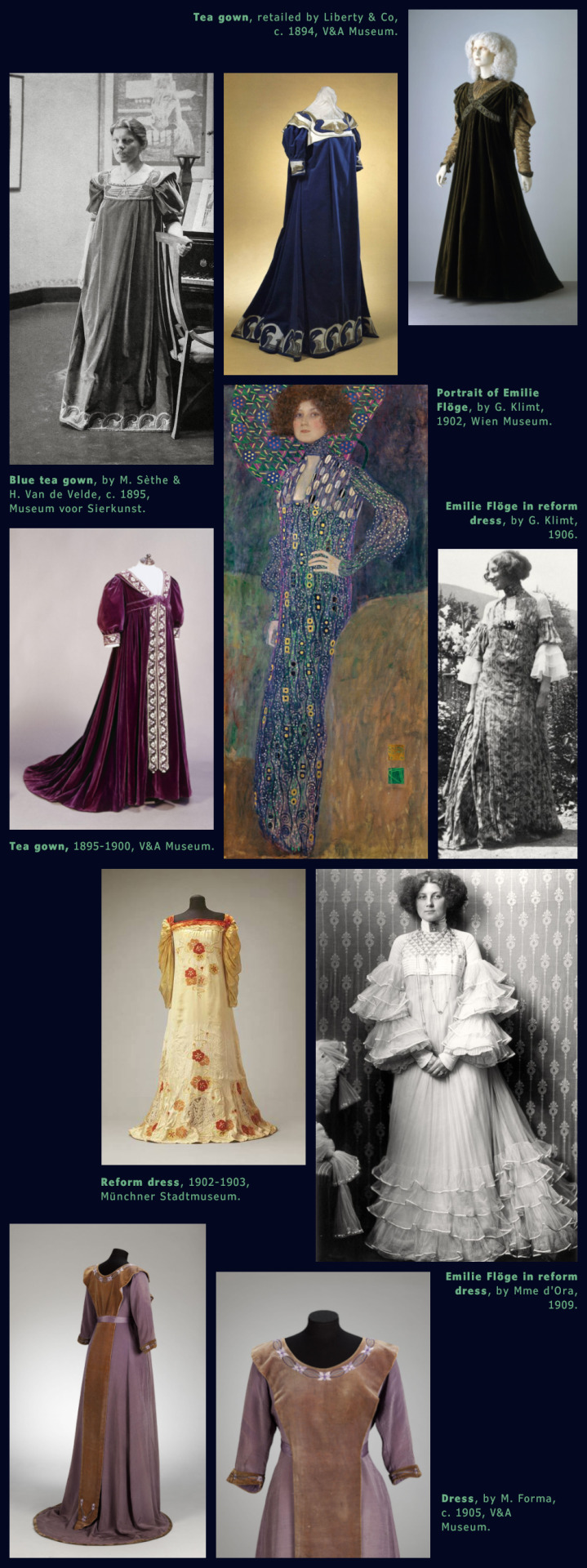
#my cc#simblreen#simblreen 2023#1890#1900#clothes#grown up#ts4cc#ts4 clothes#ts4 historical#sims 4 cc#sims 4 clothes#sims 4 historical#maxis match#decade challenge#The Reformer
338 notes
·
View notes
Text
Late Victorian British Fun (and not-so-fun) Facts
I thought others might be interested in my list of little things I've learned while researching the 1890s for my fics. This is by no means a list of things you should do when writing! Even I don't follow absolutely every single thing—I like to think wizarding society deviated quite a bit from muggle society, after all. If you wanna use this list as a reference, go ahead, but you should write whatever makes you happy. This is just for fun, and I'll probably end up writing down more stuff as I remember it—this is all just the stuff I could think of from the top of my head. :)
Basics
The Victorian Era was from 1837 to 1901. The era before was called the Regency Era (think Jane Austen) and the era after was the Edwardian Era (think Downton Abbey).
Love and Marriage
Even though the marriage age was lowered significantly in 1823, most girls still got married between ages 18 and 23.
The social season refers to the summer months from May to August in which the middle and upper classes left their country homes and stayed in London to attend social events, following the royal family. The main purpose was finding someone to marry.
Courtship, the part of a relationship that was most like dating today, only lasted a few months before progressing to being engaged. But it was common for engagement to last much longer. Dating as we know it today wasn't really a thing until after 1900.
Courtship "dates" that weren't in public often consisted of dinner at the woman's house with her parents (private time between the couple was sometimes afforded after dinners).
There was a paradigm shift in attitudes towards marriage; marrying for love became much more common in this era. But marriages were still pragmatic, too! Marriages based purely on love while ignoring the economic and practical aspects were scandalous.
Queen Victoria popularized white wedding dresses as we know them today.
It wasn't until the late Victorian Era that evening weddings became acceptable.
Snakes were a popular motif for engagement rings in the Victorian Era.
Pregnancy and Children
Victorian women were expected to hide all signs of their pregnancy, as it would imply participation in the act required for pregnancy (yeah, lol).
Husbands weren't allowed to be around for the actual act of childbirth, and it was advised he only stay around for 5 minutes afterward.
Anesthesia was first administered in the mid-1800s.
Fathers were often very involved in their children's lives, contrary to popular opinion.
Teenagers haven't changed much since the Victorian Era—our MCs weren't the only troublemakers. :)
Clothing, Personal Care and Fashion
Eyebrows came in all shapes and sizes; no one style appears to have been particularly coveted. The only exception was an aversion to unibrows.
Natural beauty was the name of the Victorian game. As such, makeup was very un-virtuous and was reserved for prostitutes and actors.
That doesn't mean people didn't use any products, however! Salves for the lips, as well as powders and rouges, started becoming popular towards the end of the era.
Perfumes and colognes were kept subtle, but floral scents were very popular amongst both men and women. Again, emphasizing the natural state of the body was seen as very virtuous.
Shapewear was just as popular back then as it is today. Adding or taking away layers of women's undergarments depended on the effect one wanted to have.
Men's undergarments were much simpler, usually consisting of cotton drawers and a long-sleeved undershirt.
Shorter skirts were appropriate for young girls, but as a girl got older, her skirts generally got longer.
School was still relatively uncommon for girls through the end of the era, but school uniforms for girls generally included aprons to protect their clothes.
Very long hair was desirable for Victorian women and was considered very feminine, but wearing that hair loose was not respectable. Bangs (fringes) weren't very popular.
The 1890s introduced the Gibson Girl look that would carry through the Edwardian Era.
Women wearing trousers was not as uncommon as one might think!
Bathing at least once a day was considered essential, but showering was not yet a thing.
Games, Leisure and Sports
Parlour games were very popular with adults at parties. Charades was an especially prevalent game.
Board games were also very popular for both children and adults.
Football (not American football!) became very popular in the Victorian Era amongst men. Croquet was the game of choice for women.
Cemeteries were popular picnicking spots and were more like sculpture gardens than grim reminders of death.
Food and Cooking
Honestly just go watch English Heritage's Victorian videos for an idea of the recipes and foods that were common back then lol. Mrs. Crocombe is a gem.
Breakfast was often a major event for wealthy Victorian Britons.
Ok that's all I can think of for now. I'm sure there's way more I'm missing. If I can come up with enough, I'll do another post at some point lol. Enjoy!
#victorian era#bonus points if you can recognize the bits I've used in my fics lol#ummmm idk what other tags to use oops#hogwarts legacy#references
329 notes
·
View notes
Text
"Palestine was heralded as ‘a land without a people for a people without a land’, and the Naqab in particular was characterized as a desert in need of technologically advanced (Zionist) pioneers to make it bloom. In actual fact, the estimated 65,000–90,000 Palestinian Arabs populating the Naqab Desert prior to the 1948 war were organized into 95 tribes, and engaged in animal husbandry and seasonal agriculture. Turkish records dating as far back as the sixteenth century show that Palestinian Bedouin owned, cultivated and paid taxes on land; and that cultivation was extensive, particularly in the more fertile, less arid northern and northwestern Naqab.
Palestinian Bedouin cultivation in the Naqab was documented by European traveller accounts from the mid- to late-1800s, as well as Zionist explorer accounts from the late 1800s and early 1900s. Reports produced both by British Mandate authorities and the Zionist Movement’s Palestine Land Development Company in the early to mid-1900s indicated that over 2 million dunams were owned and cultivated by Naqab Palestinians. The great majority of Naqab Palestinians held their land under customary Bedouin law. Neither the Ottoman or British Mandate governments ever completed land surveys of the vast Naqab region; however, they both recognized the Naqab Palestinians’ traditional land ownership system, at the collective tribal and individual levels.
... However, prior to the 1948 war, Zionist leaders such as Ben-Gurion denied Naqab Palestinian land ownership, and characterized the Naqab as ‘No Man’s Land. It has no legal owners and anyone who cultivates it with the permission of the government is entitled to become its owner, according to a Turkish law, which still prevails in Palestine’. He rejected the idea of purchasing land in the Naqab, saying to his staff: ‘In the Negev we will not buy land. We will conquer it. You are forgetting that we are at war.’
The 1948 war/Palestinian Nakba (Catastrophe) resulted in large-scale expulsion of Palestinian population, and internal displacement of many who remained in the territory that became the State of Israel. Studies of the internally displaced Palestinians have generally not included the Bedouin Palestinians in the Naqab; aside from noting that the official governmental numbers did not include them, or that a much higher proportion of the population was displaced, as compared to other regions. They, indeed, faced the most extensive displacement and dispossession, with 12 of the 19 tribes that remained in the Israeli state forced to move from their fertile lands in the northwestern Naqab to the infertile, arid region of the Seig. This resulted in nearly two thirds of the communities losing their land, property and possessions. Although Israeli authorities initially told them that the displacement was temporary, and they would be allowed to return to their lands, this never occurred. Instead, an arsenal of laws was enacted and applied throughout Israel to transfer Palestinian owned land to the Israeli state.
... Recently uncovered archives and declassified government documents confirm that the displacement and land acquisition was not coincidental, but occurred according to an orderly, large-scale state plan to expel Palestinian citizens from the northwestern Naqab, with the goal of severing their physical ties to the land, and transferring this land to the possession of the state. Moshe Dayan, who commanded the military operation, wrote: ‘It’s now possible to transfer most of the Bedouin in the vicinity of [Kibbutz] Shoval to areas south of the Hebron-Be’er Sheva road. Doing so will clear around 60,000 dunams in which we can farm and establish communities.’ Although security issues were given as a rationale for the transfer, Dayan also clearly stated: ‘Transferring the Bedouin to new territories will annul their rights as landowners and they will become tenants on government lands.’ The military government carried out the operation using a mix of threats, violence, bribery and fraud; but were careful never to give the displaced Naqab Palestinians written transfer orders, because such an operation for the purpose of land acquisition was illegal. Oral Palestinian histories of threats, violence and arrests were confirmed by archival kibbutz and state records.
Although the official government story was that Naqab Palestinians voluntarily left their lands, declassified government records from the time document the ‘Bedouin resistance and protests, the stubbornness with which they tried to hold onto their land, even at the cost of hunger and thirst, not to mention the army’s threats and violence’. Archival kibbutz records also documented the military government’s use of many methods to force the Bedouin to leave their lands, including stopping their food supplies for months."
Ismael Abu-Saad, "Al-Naqab: The Unfinished Zionist Settler-colonial Conquest of its Elusive 'Last Frontier,' and Indigenous Palestinian Bedouin Arab Resistance," in Decolonizing the Study of Palestine: Indigenous Perspectives and Settler Colonialism (2023)
87 notes
·
View notes
Note
What's BANDits? I've heard the term before but idk what it is
BANDit stands for "Birds Are Not Dinosaurs" - its. IE, its the term for the group of "scientists" that have continued to insist birds did not evolve from dinosauria despite literally boatloads of evidence to the contrary.
You see, we haven't always known birds are dinosaurs. When we were first thinking about evolution (in the Western World, remember: lots of colonized people had ideas about evolution *and* paleontology that White People essentially wiped out when we colonized them), a lot of people pointed out the similarities between many of the dinosaurs being found and living birds. MANY. It was common knowledge in the 1800s among scientists.
But then along came this guy Dollo. Dollo didn't like the idea birds evolved from dinosaurs. See, he found wishbones in birds. He found wishbones in some of the triassic weirdos of the past, things that dinosaurs would evolve from. But he didn't find wishbones in dinosaurs. And Dollo was convinced that a structure couldn't re-evolve if it had been lost during evolution. So, to him, there was no way birds could be dinosaurs.
There were problems with this:
he didn't know about how traits are gained and lost genetically. In fact, he didn't really know about *genetics*. There are lots of ways to re-gain a trait you lost (if you only lost it by turning off its regulatory genes, or you re-evolve it convergently, that kind of thing).
at the time, we had dinosaur wishbones. we just didn't know thats what they were.
since then, we have found waaaaay more dinosaur wishbones. And also, tons of other evidence. so much evidence. at this point, there is literally nothing else birds could be.
it took time to build up that evidence. For the entire first half of the 1900s, and a good chunk of the second, no one believed birds evolved from dinosaurs.
But then we started to find the evidence.
And we found more.
And more.
And more.
By the 80s, it was becoming pretty clear that birds probably evolved from dinosaurs. At this point, documentaries and fictional material are even referencing it. But, there was still a group of skeptics, the first true BANDits (because at this point it was not the majority opinion). And that's okay - skepticism is important in science.
Its the fact that they KEPT being skeptical even as more and more evidence poured in. By the mid-90s, it was incontrovertible, because we had found fossils of feathered but very clearly nonavian dinosaurs. By the 00s, we were finding them CONSTANTLY.
And yet, the BANDits kept BANDiting.
Most of them have died, because they were old and stubborn. Very few new scientists are BANDits. It's really just
A) in russia, because russia has had a... weird history with paleontology. I don't want to get into it
B) those remaining few old people who refuse to change their minds in light of new evidence (this would be Feduccia)
in the 10s, they were really annoying, because enough of them were still around that people thought they were good scientists (they're not), and so if you said "birds are dinosaurs" at least one person would bring up banditry to prove you wrong, and then you had to go on a whole spiel, and it was exhausting
In the late 10s and now 20s, that's pretty much dead. It's just impossible to argue with anymore. I don't know how Feduccia keeps publishing his crappy books, but I really wish that someone would say "I can't publish this" bc people read them and think they're right.
Like, birds are *such* dinosaurs that we don't even know at what point dinosaurs are firmly birds. It's kind of murkey, because nature doesn't do categories.
So, yeah. That's what a BANDit is. They're almost extinct. May they become as such by the 30s.
249 notes
·
View notes
Text
honey heat: prologue
pairing: riri williams x black!oc

synopsis: when riri finds a young woman sleeping under her mother’s pecan tree during a bad thunderstorm, she isn’t expecting to get used to seeing the stranger’s face. but when the storm clears up unusually fast and the crops in her mother’s farm bounce back from the mid-june heatwave, riri can’t help but wonder about the pretty stranger with an odd taste for honey.
special dt to @clinicallykrazy, thee biggest evangeline enthusiast HAPPY BIRTH MONTH SISTER
series warnings: gay bitches from like the late 1800s early 1900s??, cowboy!riri, they live on a farm but they also have some horses so there’s a little ranch area too, nymph!oc (i love earth fairy lore, eve is my cutie patootie), lesbian yearning, eve is a little bit obsessive ngl, interesting relationnships with god/religion, death but it’s not anybody deserving of love or it’s on accident lmao, magical woo woo shit, FAWK time, tank tops are a thing cuz it’s essential for cowboy butch riri, racial tensions but trust they get handled, eve is a bit unhinged but who isn’t?
a/n: ntm on these long ass sentences and paragraphs cuz i wrote this in creative writing class and the formatting i used was different but i hope yall enjoy!!
—
Evangeline wasn’t stupid, she was far from it. She knew why her mother urged her not to sing, not to tell the garden of her perils, not to rejoice in the nearby river. Nature laid in the palm of her hand. She was terribly familiar with it, the way the sun treasured her skin, the way the trees hung off her every word. Her mother called it an illness but Evangeline knew what it was. Much more than a gift, this was ethereal. Evangeline had god in her.
It was the easiest to resonate with the life around her with song. They loved her song, the way god spilled from her lips like honey. The trees swayed gleefully and the wind whistled a supporting melody while the garden animals flattered her with their charmed chatter. The young woman sang and sang, ‘til night fell sometimes. The moon would greet her just as enthusiastically as the sun, setting a fairy glow over her. This was only when it was good, when god was good, when Evangeline felt good.
Her mother, Rosemary, had strong reason for casing her daughter in these emotional bubbles. As a baby, her cries had started endless thunderstorms. Always knocking down the distant power lines of cities and unearthing the beloved trees, Earth was eager to bow to Evangeline, to correspond with her mood. Evangeline, Earth, and God were all one, and this was simply the way things worked.
The worst it’s ever been was Evangeline’s first heartbreak; her best friend, Kiara, moved away to a small country where her father could find better work. The Earth ate away at itself, tearing the surrounding forestry apart, stripping the sky of any light because why should anyone see light in such a dark hour in Evangeline’s life? Evangeline split the Earth’s ground as lightning tore through the darkened sky.
Thunder roared over the sound of the little girl crying for her friend, the only other girl her age for miles, the only friend she had that didn’t despise her for the way god flowed from her eyes. Her mother and father struggled to console the little girl, bursting with lightning shaped-scars and sobs that coincided with the booming of thunder. No matter how tight they held her she kept crying.
Of course, it wasn’t all bad. Especially not to Evangeline, she loved being so close to nature, able to hear the inquiries of rose bushes as if they were her own thoughts, having the love of sun radiate in her heart, it was dream-like for her. Her mother, Rosemary, worried deeply for her daughter. When she was much younger, Rosemary witnessed her mother battle the ‘illness’ that swallowed Evangeline whole.
Over and over again, Rosemary watched her mother struggle to keep the lightning in her fingertips, to the ocean coasting over her emotions. By the time Rosemary was Evangeline’s age, moonlight was already starting to favor her presence, all while her mother fought to distinguish herself from her Earth, from her God. Nothing helped and by the time she passed her death brought a wave of grief to her Earth and anger to her God.
Plenty of the shrubs and old growth trees behind the house fell over in a way that would suggest they uprooted themselves, the wind blew a mournful hymn and the animals were scarce besides the few that fell so ill they suffered a fate similar to Rosemary’s mother. Rosemary had learned to suppress it, feed her Earth laughter and joy every few weeks and pray that her God didn’t find her sorrows or her rage.
Rosemary kept her Earth fed and her God sedated almost always. She couldn’t help hurting, though. As much as nature loved to cater to her, she was still human, still feeling. Her mother’s death almost rocked the cradle too hard, just a few weeks before Evangeline was born. Rosemary tried to travel where her Earth’s grief couldn’t touch her but she was surrounded. Isaiah was good though, he was an anchor through all that storming pain and heartache.
He was a good man, a good father to Evangeline, too, but still she felt he didn’t fit into her view of life. Isaiah wasn’t hard to look at, he was somewhat funny, and well-skilled with mechanics and botany, subjects Rosemary loved dearly. But Isaiah disrupted the calm she worked so hard to give her Earth and the tranquility she fed her God.
Sometimes she’d just look at him and frown, hear him speak and be beyond irritated with his existence. It wasn’t any help that Evangeline favored her more, Isaiah always second place. It wasn’t like he was bad to either of them, Rosemary just quietly wished he’d go away and Evangeline heard those whispers.
Her mother was always too busy trying to keep her God comatose that she had no clue their Earths talked to one another. One of many factors of why Evangeline favored her mother. When her mother slept at night after another day numbing her God, her Earth would reiterate some of those secrets to an Evangeline much too awake to turn her own mother’s Earth away.
Rosemary’s Earth bustled through the leaves of the shrubs next to Evangeline’s bedroom window and the new moon would cast a menacing shadow on the energetic hummingbirds that, much like Evangeline, were too full of life to sleep tonight.
And these hummingbirds chirped out the thoughts Rosemary was too scared to let her Earth hear, let her God know of. But they knew better than Rosemary did. She kept them too starved to do anything but tell, and tell they did. Evangeline’s Earth was much too connected to her to be restrained.
The wind howled as the young oak tree, barely as old as Evangeline that day, reached its branches into her parent’s bedroom and inched further and further until the branches snagged on kin. Her mother slept a restless sleep as the beloved oak tree turned Isiah into an ornament. Evangeline didn’t mean to let the branches grow that far, she didn’t even intend for her Earth to react to her mother’s secrets.
She told this to her mother when she woke, uncharacteristically distraught at the news, and Rosemary only had words of contempt for the young fae.
“Always. It’s always unintentionally. That’s your problem, you never mean to cause thunder showers, you never mean to put your father in an early grave because you never meant to do anything. You let your Earth siphon your emotions right from your heart, you can’t control it. You never could.” Her mother ranted to her with conflicting tears running down her face.
Evangeline’s Earth sent two twin flashes or lightning at her mother’s harshness.
“It wasn’t even on purpose! And you’re acting like you’re gonna miss him, like you could even stand to look at him. You’ll forget what he looks like by next week, momma!”
The truth in Evangeline’s worlds shook Rosemary so deeply a harrowing symphony of a storm began outside. The lights shut off barely a moment later. “Just because I don’t like him doesn’t mean you gotta send him to kingdom come.” Rosemary’s voice broke as she whispered to her daughter in the dark.
“You still saying that like I did it, like I did it on purpose, like I wanted it to happen.” Evangeline spat out, tears of her own welling in her eyes as the storm outside worsened, tree limbs loudly knocking on the windows in a manner that suggested they were trying to check on the two women.
“Just cuz you can’t stand the love I have for my power doesn’t mean you gotta blame me for everything my powers do.” The young fae huffed angrily at her mother. All this upset over a man her mother could hardly stand being in a room with, it was unbelievable to Evangeline.
“I didn’t love him like a wife does, I hardly liked him to be truthful, but he made me feel like I could be normal, like if I ignored my God enough, kept my earth happy, it’d be just like I was normal.” Rosemary spoke so softly her daughter was unsure of whether or not she meant to say it outloud. The confession brought a swirl of understanding and pain to Evangeline’s chest. It was common for the younger woman to try and socialize, make a friend, or even just enjoy a book and be hit with the reminder that felt like a tidal wave; she wasn’t normal. Never would be.
She considered herself lucky compared to her mother, Rosemary. She’d cried away her contempt for herself, her Earth, her god, when she was still little. Rosemary had this hatred festering for herself for decades. Marrying Isaiah for the sake of trying to gain a form of normalcy couldn’t have been helpful.
“We’re normal to us, they normal to themselves. Don’t hate yourself for that, it won’t make you any less earthly.” Evangeline spoke warmly to her mother, hugging her to try and provide some comfort to a sobbing Rosemary. The two sat there crying for a while, the storm outside lightening to a soft drizzle, the trees swaying as Rosemary’s sobs lessened. By the time the sun returned the mother and daughter were tiptoeing around a question that needed an answer, and soon.
“What’re we gonna do with him, momma? He might start stinking up the house soon.”
Isaiah’s body was disposed of in the typical way. Incineration had become increasingly common amongst people as decades passed and Rosemary and her daughter figured it would make answering any questions easier. Especially those asked by figures that were too nosy and emboldened by their badges to stick their nose in things they couldn’t begin to comprehend. Once Isaiah was cremated the two decided to put him in a deep blue urn.
Evangeline giggled, “You know this was one of his least favorite colors?” Her mother dropped her jaw at the news in disbelief.
“You let me pick out that urn, Evie, why you ain’t tell me?” The younger woman simply shrugged and played innocent, twirling one of her braids around her finger, “I mean, you the one that married him.”
Rosemary rolled her eyes at her daughter’s antics. Her father had just passed, partially due to her own emotions, and here she was having a laugh about letting her mother stick him in an urn of his most hated color. She smiled after a while though, seeing the joy and brightness in her daughter’s smile. Rosemary much preferred her daughter’s mirthful attitude than the tears that fell from her eyes like water from a broken dam.
—
Evangeline and her mother began to return to normal, a better normal, actually. Rosemary would help Evangeline with the garden and she taught her mother how to connect with her own earth and her god, how not to let them rule her. “I love my earth and my god, you fear yours. That’s the difference.” She explained to her mother with an understanding smile on her face.
Just as her mother began to finally make peace with her earth, she left. Left Evangeline.
—
Rosemary had just begun to find peace in her Earth, truly understand her God, and then she passed. Barely a year after Isaiah, Rosemary left her daughter all alone with her Earth and her god. Evangeline cried and screamed so much the first few days after, the rural area she lived in was practically washed away by the downpour of tears her Earth shed and the furious howls of her god blowing away any and everything besides for the little home housing a young woman too tired to be meek. Even if she wanted to, Evangeline couldn’t stop her Earth from pulling itself apart and her god lashing out at whatever it saw fit. The same way she was connected to her god and her earth, they were connected to her.
Whenever her god tore trees up by their roots, Evangeline would have to weep. Evangeline and her only companions, her Earth and her god, grieved together like that just long enough for Evangeline to have cried herself sick. All her screaming sobs only strained her voice until it was no more than a whisper. Evangeline opened the door of the house pleadin for the sunshine to hold her since her mother could no longer wrap her arms around her. There was an unusual briskness to the air, it was well into late summer, the sticky humidity of July should’ve been clinging to her skin. Her grief was all around her, suffocating her with the strange chill in the air and the knee-high flood water caused by her own grief.
Dragging her feet, Evangeline swayed eerily back and forth as she trudged forward. The young woman had no destination in mind but she couldn’t keep this up, screaming herself sick in the home that held every single memory she’d ever have of her mother. It wasn’t a safe place for her to grieve. And even if it was safe, she didn’t want to grieve.
Evangeline trekked on through the flooded valley, barefoot and stumbling over herself when her mind replayed particularly wondrous memories with her mother. It hit her that was an orphan, a motherless child. Though she was an adult, she was still so young, she needed the guidance of her mother, the protection and safety of her love. Evangeline felt like nothing she cared for could stick around. Not the pet squirrel she had when she was five, not the pet rock she adored when she was 10, not her best friend when she was 13, not her mother that taught her so much and learned from Evangeline as well.
A dull ache settled firmly in the center of Evangeline’s chest as it began storming again. The fear and despair rolling over her distorted her perception so bad she wasn’t even sure if all this storming was her doing. She didn’t feel strong enough to put a could in the sky, let alone bring about a downpour like this. Evangeline was so far from that little house she and her family lived in, that little shoebox full of life and love, it was ages away now. Her lips would be cracked if not for the rain, and for the first time in her life, she had bags under her eyes and a dullness to her brown skin. All the cold, wet weather was gonna get her sick. The girl didn’t even get allergies but she could feel an unfamiliar itch at the back of her throat and the congestion in her sinuses. Barefoot, sick, and too far from home, Evangeline fell dizzy as the dread spilled down on her in sharp, icy rain drops.
—
Evangeline found herself wrapped up in a quilt. She could tell it was handmade from the stitches, for a moment she’d mistaken it for a new project her mother was working on. It felt like vines of ivy were twisting around her heart when she remembered that wasn’t possible, that her mother was gone. The reminder also brought an intense sense of fear to the young fae. She’d wandered away from home trying to negate some of the overwhelming burden of her own grief. Evangeline had no clue where she was and was scared to find out. This was no time of guaranteed safety for women like her, there hadn't been a time like that in this country, ever.
Another realization; she was in new clothes. These clothes were made for someone quite a bit shorter than she was. The shirt she had on had loose sleeves that stopped just shy of her wrists and the waist was wide, she guessed they were old maternity clothes. Her pants fit loose as well, a bit tight around her waist and stopping well above her ankles. Evangeline was more than grateful though. No one who intended to harm her would give the clothes off their back and a warm bed in their house.
Evangeline was still a bit scared but reminded herself there was no need to be. If there was true danger here, her Earth would’ve stretched blossoming tendrils of vegetation to tickle her ear and pull her out of her slumber to observe the danger. Her Earth and her god were just parts of her but her mother knew well enough to teach her daughter how to protect herself with this gift.
Quietly easing out of the comfort of the mattress, Evangeline crept out of the room to meet whoever was kind enough to save her from her own grief. A small frown began to form on the young woman’s face as she tiptoed around the cozy house, only to find it was currently empty.
Briefly, Evangeline pondered the possibility of her own abilities saving her from that storm but she quickly dismissed it. Someone, multiple someones, lived here. And a small animal, judging by the two little bowls just outside the kitchen. Creeping towards the front door, Evangeline took in a deep breath to calm herself again.
—
Evangeline’s heart was still heavy beyond words with the loss of her mother but the hot, humid air of late July in the south was refreshing, comforting.
Almost immediately after stepping outside, her eyes found someone plucking some ripe fruits from a tree that was much, much older than Evangeline. The tree also looked to be much older than the person gathering its fruit. She was young, Evangeline’s powers could actually tell her how old exactly, but she figured she shouldn’t do that to the stranger that’d been kind enough to take her in.
The stranger had rich brown skin just a few shades lighter than the lively dark brown bark of the fruit tree she busied herself with. Her shirt was the same material as Evangeline’s but the sizing was much different, the same going for the stranger’s pants, which were rolled up to her calves. The stranger had her coily hair pulled away from her face in cornrows that tickled her shoulders.
Evangeline walked away from the cover of the house and closer to the farming stranger, wanting to get a better look at her. Evangeline walked further from the cover of the house and closer to the farming stranger to get a better look at her face, which was beautiful from what Evangeline could see so far. Brown eyes framed with dark lashes, eyebrows furrowed in concentration, a wide nose and full lips. She reminded Evangeline of a painting she’d been obsessed with when she was little.
“They don’t say hello where you from?”
The sudden speech shocked the young fae. For a moment, she thought she heard it in her head. When the stranger fully turned her face to Evangeline, and the sounds of fruit being plopped gently into a weaved basket stopped, she realized the speech was indeed real. This stranger wasn’t some figment of her imagination.
“Sorry, I’m Evangeline. You the one I should be thanking?” Evangeline kept her eyes on the leaves just above the young woman’s head, preferring that over direct eye contact. She found direct eye contact to be strange most times, especially with strangers.
“You can thank my mama when she get back from the market, I’m just the one who took you out that rain. Well, me and June.” The stranger grinned a little at the end of her sentence as she returned to her tedious task, her eyes set on something off in the distance.
Turning around to see what had grabbed the kind stranger’s attention, Evangeline saw an adorable puppy with sandy fur and umber patches running towards her. She giggled as the small dog pawed at her leg, whining for the new stranger to pick them up.
“What’s your name?” Evangeline questioned the young woman as she picked up the energetic puppy. June immediately began yipping as the fae scratched under her chin.
“Mamma named me Amary, something to do with them flowers she love so bad.”
Amary. Amary. Amary. Amary. Evangeline let the name roll around in her head, making an effort to stick Amary’s name to her face. She knew exactly what flower Amary was talking about, too. A beautiful winter flower that was red.
“Amary like Amaryllis?” Again, Evangeline asked Amary a question. This time, the friendly stranger climbed down the wooden ladder with the basket full of fruit up against her hip, chuckling at Evangeline’s curiosity.
“You a bit nosey, huh?” Amary joked with the other young woman while guiding her to the little table set up on the porch of the house. “Now, you wanna help me pit these plums and tell me where you from while we wait for my mama to get back?”
Evangeline smiled softly as she took in the scenery of the place, felt the livelihood of nature, the warmth of this stranger’s actions. She gave Amary a nod as she headed to sit down at the table with her. Evangeline and her Earth felt a bit of peace, her God full of hope.
Maybe, just for a while, she could grow here.
#honey heat#kissvamps#black!writer#incoming black butchfemme couple#everybody cheered#kissvampswrites#lesbian#riri williams#riri williams fic#riri williams x oc#black lesbian#pulled the name amary out of my ass lowkey but amaryllis is a real flower so
94 notes
·
View notes
Text
Silly things Bertie did pre Jeeves
drunkenly bycled naked around Oxford and sang songs
once, possibly multiple times, (also in Oxford) got drunk, thought himself a mermaid and wanted to jump in the fountain and play the harp
Bertie definitely (maybe) was a bit gay with his pal Harold P. Pinker "Stinker Pinker", he Compares their relationship to David and Jonathan from the Bible (suspected gay, biblically in love) & spends lottss of time describing his skill, figure, and their closeness
Bertie definitely (maybe) was a bit gay with "Kipper Herring", he once again describes his appearance in detail. They've been friends since prep school (elementary) & has lunch with him often even post Jeeves
Bertie definitely (maybe) was a bit gay with Ginger. He Compares them to Damon & Pythais which was at one point (late 1800s/early 1900s) was used as code for gay couples. Spends much time on appearances & missed him sorely when he moved away. They're rooms were adjacent in Oxford, where they met.
Bertie was definitely (maybe) a bit gay with most of his school friends. Catsmeat and Boko stick out to me as some others
stole biscuits and cigars from his old Schoolmaster's house many times (he was chased out one occasion)
Was a boyscout when he was very little
Won a scripture prize (mentions this all the fucking time Jesus Christ)
Won a blue ribbon in Choir Boys Bike Race Handicap bc a kid dropped out to fight someone mid race and Bertie had been granted a large headstart
Won a blue ribbon in tennis
Participated in boat racing (he dislikes it)
Won best collection of pressed wildflowers as a boy
Took a dance class with Catsmeat's sister and socked her when she made fun of his pimples (which he apparently had lots of at 8 years old)
138 notes
·
View notes
Text
Feel like pure shit just want her (the rich history of militant labor organizing among eastern european migrants from late 1800s to mid 1900s) back
75 notes
·
View notes
Text

"It is in the nature of walls that they should fall. That walls should fall is the consequence of blowing your own trumpet." (Oranges Are Not The Only Fruit – Jeanette Winterson, 1985)
okay, i got a bit dramatic with this one, but can you blame me? after all, everything was bigger in the eighties. hair was bigger, shoulder pads were bigger, everything was bigger. music was bigger, and music related subcultures gained a super heavy footing. while the punk movement had already existed and the goth subculture had started to build in the late seventies, they both hit their heyday in the 1980s! glam rock was huge in the eighties, and there was actually a fair bit of androgyny in rock styles and subcultural styles. far before the athleisure trend we see today (i still dont understand what athleisure is?), was the athletic fad of the eighties, heralded by olivia newton john's "physical". this athletic fad is where we see the legwarmers and the spandex that you'll see in every modern day 80s-themed halloween costume. much like in the 1930s, fashion drew from film and hollywood, and john hughes' teen films influenced the fashion of the youth, which in turn inspired more teen films.
guys, we're getting super close to modern day, and i have to admit: i have no fucking idea what modern trends are. i have like five outfits and most of them involve band tee shirts.
1800’s / 1900-1909 / 1910-1919 / 1920-1929 / 1930-1939 / 1940-1949 / 1950-1959 / 1960-1969 / 1970-1979
cc links under the cut!
see my resources page for genetics
talullah : kamiiri's celine hair / eco lifestyle top / laundry day jeans / base game heels
teddie : base game hair + earrings / its-adrienpastel's scully suit / chere-indolente's katherine accessory puff sleeves / base game stockings / cottage living lace up heels
therese : zombietrait's suzie hair + just like heaven eyeshadow / renlishsims hard days night eyeliner / base game highlight / deathpoke1qa's nancy rosary / cloudcat's no halo accessory mesh top / deathpoke1qa's trad tank / elliekobrakid's revenge gloves (tsr download) / kamiiri's cordelia skirt / realm of magic tights / bluecravingcc's goth is rock mid boots
titania : buttersim's 80's ponytail / discover university top (i think!!! i do not remember!) / base game shorts + socks + shoes
tonia : okruee's shiloh hair / base game large hoops / okruee's mari jumpsuit / seasons braclets / cooper322's reebok freestyles
trudy : joliebean's beatrix hair / joliebean's cindy outfit / base game shoes
tsiana : syaovu's andy hair / bluecravingcc's goth is rock piercings / the vampire squid earrings have been deleted unfortunately :( / myfawnwysimblr's double spiked choker / realm of magic bodysuit / wistfulpoltergeist's night city gloves / evellsims' fleabag pants / evellsims' anarchy shoes
tuija : aniraklova's made in love hair / realm of magic facepaint / zombietrait's early sunsets eyeshadow / base game blush + lipgloss / joliebean's ultraviolet outfit conversion / bellassims' orion shoes
tyler : kamiiri's juniper hair / femmeonamissionsims' florist frock / base game socks + shoes
tzofiya : ice-creamforbreakfast's kelly-marie hair / leeleesims1's unidentified flying earrings / horse ranch top / altersims vagabond jeans recolor / joliebean's road trip boots
thank you to @kamiiri @its-adrienpastel @chere-indolente @renlishsims @deathpoke1qa @cloudcat @bluecravingcc @okruee @cooper322 @joliebean @syaovu @myfawnwysimblr @wistfulpoltergeist @evellsims @aniraklova @bellassims @femmeonamissionsims @ice-creamforbreakfast @leeleesims1 and @altersims
68 notes
·
View notes
Text
DISCLAIMER: THIS INFORMATION FOR THE DOAI CD AU IS OUTDATED. I WILL POST AN UPDATED VERSION EVENTUALLY
When I feel like it
& can properly flesh shit out
You’ll see it eventually.
FUCK YEAH!!
WRITING HEADCANONS FOR HORRIFYING MAN-EATING MONSTERS!! LETS GOOOOOO!!
I got this idea cause I knew I’d clutter up the og DOAI CD AU post if I just added all these goofy ahh headcanons into THAT post, so here we are.
Anyway uhhhh
Let’s go.
General shit:
• All six Veldigun go by their canon pronouns that have been confirmed in a recent Pastra stream. Clyde goes by it/its, Winfrey goes by they/them; Klaus goes by he/him, Jack goes by they/them, Simon goes by he/him, & Flock goes by it/its
• Veldiguns CAN eat actual foods, but they don’t gain anything from it. They’re void creatures, so that shit just gets obliterated from reality the moment it gets consumed. They do so just cause they enjoy the taste of whatever they eat… MOSTLY Clyde & Winfrey. The other four don’t really do that nearly as often, if at all.
• Mind consumption works like… reading through a book. You skim through it, you get a general rough idea of the entire thing, shit like that. The Veldigun don’t ever LET the minds of others warp them unless they ALLOW them to, i.e. gaining a certain impression upon skimming through the memories of a person they just consumed.
• All Veldigun actually look SO MUCH more grotesque & animalistic than they appear to humans most of the time. Their more cutesy cartoon appearance is just a result of them causing hallucinations, which is almost always unconsciously done by them.
• A Veldigun’s touch is only lethal if they WISH it to be so. It is a manual tactic that they can control, just as long as they aren’t accidentally spooked or something.
• Veldigun still sleep, just a lil less frequently than humans do. Some Veldigun definitely sleep more than others, but this is more so based on some of them choosing to continue hunting & shit instead of sleeping rather than it being for a specific biological reason.
• Yes. Clyde & Winfrey are canonically a ✨thing✨ in this AU & have been for quite a while by the time Winfrey got captured. They are very much gay & in love & you cannot stop me.
• The overall timeline for the series is a LOT more spread out than it was in the old DOAI lore. For instance…
- Clyde Lankmann, the first human Clyde the Veldigun consumed, was the man who started the Lankmann Foundation & died during the late 1800s. He wasn’t the first to die though as a “good friend” of his, William Winfrey, was tricked into walking right into one of the Veldigun’s clutches by Lankmann himself to be rid of the bothersome musician.
- Simon Lankmann died in the early 1900s after he cut ties with the Lankmann family altogether & started a family on a rather secluded farm (the whole family later being consumed by Simon the Veldigun).
-Klaus Kruger was a young man who died in the mid 1900s. The Krugers & Lankmanns were actually part of the same family tree at this point, with Klaus finding interest in the Lankmann family business. This interest led to them stumbling across Jack Walker, an incredibly impressionable boy who Klaus used as his puppet the second he laid eyes on the poor guy. The two would get up to all sorts of trouble regarding drugs & even murdering a few people, with Klaus in particular genuinely showing a sense of excitement over their wrongdoings.
- “Vincent” Lankmann is the most RECENT Lankmann to date in the timeline. He is around 50 years old when the AU takes place (aka the late 1990s) & is looking to find out how to kill a Veldigun so he can do the one thing his many predecessors before him could not: outsmart them.
Clyde:
• Clyde prefers to munch on fruits or fruit-flavored shit. Lemons are its favorite by far.
• Alternatively, Clyde HATES anything that even REMOTELY smells like garlic & onions, much like actual cats & lizards. Having them on hand won’t save a victim from Clyde, but it’ll at least force it to get crafty with catching you off guard or getting rid of that PUTRID smell first.
• It’s often seen having a rather bouncy & giddy personality, but this is because this is just what the lil goofball’s like around Winfrey or when indulging in its hobbies. Bro’s a lil shit around other people, ESPECIALLY ones that it doesn’t particularly like. It sort of acts rather emotionless or awkward around people it doesn’t know (who are not prey) by default.
• Despite that fact, Clyde has a LIL bit of an ego that tends to show from time to time, especially over its own crafts & actions. Because of this, it is a LOT more susceptible to getting embarrassed or self defensive than its partner, & will often hold quite a few grudges, sometimes for even the smallest of things.
• Clyde uses a lot of its free time to learn certain skills such as sewing & baking. Why? For Winfrey. Clyde was the one to make Winfrey’s outfit after all, & it quite enjoys making outfits for the both of them now that it’s gotten into the habit of doing so. As much as Clyde loves getting into a ton of different hobbies to keep itself doing shit constantly, they’re MOST of the time going to have something to do with Winfrey. Call Clyde a malewife & I will send the horde to fetch your soul for me WIWOWKWOWKDOOSKFKEEKKR
• It may be… not great at singing, but it still loves singing along with Winfrey whenever it can. Winfrey finds it adorable.
• Ever since it stole that one onesie from Grimmso’s & rescued Winfrey, it’s developed quite the interest for dressing up. Sure, not everything fits perfectly, but it enjoys trying on different outfits just for the heck of it.
• Since a lot of human clothes can already fit Clyde already, most of its outfit-making work is focused solely on Winfrey, making them into a bit of a fashion model for the lil guy. Winfrey may not always agree with whatever Clyde makes, but they both enjoy the process of it nonetheless since Clyde finds it really fun & Winfrey finds it incredibly adorable.
• Clyde is a crafty lil genius that often flexes its intelligence via petty means, such as overly elaborate pranks (that are often aimed at Klaus).
• Clyde despises Klaus due to Klaus just overall being a jerk towards everyone & despises Simon due to how much of a doormat it perceives the guy as.
• Despite being on the run from the entire continent, Clyde still likes to find certain cool places for it & Winfrey to hang out & have some fun at, such as abandoned or empty amusement parks, malls, all that jazz.
• There’s just something about collecting tiny lil trinkets & gizmos & other various Doo dads that delights Clyde. If it’s small & pretty, it’s most definitely going to grab the lil guy’s attention. Captain Quackers the rubber duck was one of these things of course, but Clyde has collected SO MANY other colorful & cute lil things in the past, some of which it has to leave behind since its collection will often get too much to move from place to place.
• Clyde is extremely intelligent when it comes to strategy & crafting… but lacks a bit of emotional & social awareness that makes it hard for the poor thing to empathize with anyone it is not super close to (aka if they’re not Winfrey) as well as properly understanding & handling its own emotions, which is one of the few things Winfrey has a leg up on it with.
• It ADORES rambling on about all sorts of topics they have a fascination with, especially regarding their knack for crafting. Even so, it’s only ever comfortable info-dumping to Winfrey.
I feel like giving y’all a cute nugget of info about the CD AU.
Winfrey:
• Winfrey has a HUGE sweet tooth & enjoys sugary things & baked goods. They can’t choose a favorite, but some of their favorite foods & drinks are cookies, chocolate candy bars, toffee, cupcakes, and hot chocolate. Overall, they prefer bite-sized treats rather than full-blown desserts, but they’ll take what they can get.
• Their spice tolerance is… well, horrible. Even smelling it makes them wanna gag. Unlike Clyde, having something spicy on hand will MOST LIKELY actually save you since Winfrey is nowhere near as crafty & clever like Clyde is. You could probably chase the big guy around with a chili pepper if you feel daring, but I personally wouldn’t recommend it… not just cause you’ll most likely die regardless, but also because that’s cruel & you shouldn’t be scaring poor Winnie like that. How fuckin DARE you??
• Despite being a bit of a dimwit, they ADORE music, especially orchestral or classical music. If they hear a famous century old song play in one way or another, you BET your ass Winfrey’s gonna identify that shit INSTANTLY. This stays even after being traumatized by Lankmann, which is something Clyde both finds adorable & is relieved by.
• Winfrey also admires more complex and intricate outfits, & would be THRILLED to wear something quite dapper if it wasn’t for the fact that… well… they’re fuckin HUGE. Clyde still tries its best to make the big guy look as nice as it possibly can though, & that’s good enough for Winfrey. JWOWKSKWKDKEKEO
• Winfrey’s mouth wasn’t ALWAYS closed like that. The only reason it’s currently a blank slate by default is because Winfrey did that to themselves back when Lankmann had JUST captured them & started interrogating them regarding Clyde’s whereabouts. Beeg guy thought they could give Lankmann the permanent silent treatment, but it didn’t turn out so well for them JAOWDKWOFKWOOD
• Even though they no longer have the bouncy personality they used to, they still get excited & bubbly every now & again, particularly when they & Clyde find a fun place to mess around in or when they get to talk about music… just in general KWOWMDOWKDK
• Winfrey is a lot more open to being social than Clyde, particularly due to their old fascination with humans & their culture. Even after what happened at the asylum, they don’t find it hard at all to empathize with others, sometimes even to an excessive degree. Even so, they are definitely more so a listener rather than a speaker & will rarely ever initiate the conversation.
• They can easily tear open their mouth to speak without feeling an ounce of pain. They can do this due to how their skin isn’t ENTIRELY solid & is still very much composed of classic veldigoop. This goopiness is mainly apparent for the skin that covers their mouth while the rest of the body is decently solid & hard to tear. This is also why Winfrey’s face-skin can easily and flawlessly reconnect after Winfrey is done talking: that shit can just mold back together into one solid piece like putting two chunks of slime together.
• Winfrey enjoys hearing Clyde ramble, no matter the topic at hand. Rarely do they ever understand a lick of what Clyde’s talking about, but they just like hearing Clyde so passionate & excited about something. That & its nerdy rambles are just adorable to listen to IWNWOWKWOWNEOWM
Didn’t know which of the two’s lil categories to put this in, so uh…
I’m putting this as it’s own separate point.
Whenever they can, Clyde & Winfrey like to hop on a train to get around.
Something about trains strangely comforts Clyde, & it almost ALWAYS falls asleep as soon as the two can find their way into a fairly empty & unattended train car to crash in.
Winfrey really enjoys the view they get to see on a moving train, especially during sunset.
Klaus:
• He & Jack actually spend a lot of time in America rather than Canada like the rest of the Veldigun.
• Klaus’ methods for murdering his victims (solo) often has to do with them either luring or simply picking children off the streets. He may enjoy using Jack to finish the job, but it doesn’t necessarily mean they ALWAYS have Jack do it.
• Klaus is ALL business, meaning he & Jack don’t do ANY of the cutesy fun shit that Clyde & Winfrey do. Hell, Klaus finds that shit repulsive. All Klaus & Jack do is kill & try not to get hunted down by the entire continent by moving from place to place CONSTANTLY.
• Despite him being all business… come on, that rat bastard’s definitely tried a cigar at least ONCE at some point. LOOK at them.
Jack:
• Jack sees themselves as just Klaus’ sidekick rather than his equal, obviously thanks to Klaus himself. Because of this, they have VERY little self worth & feels that abandoning Klaus for whatever reason would leave Jack with nothing.
• They never openly admit or display their own opinions on ANYTHING, ALWAYS agreeing with what Klaus says, even if they internally don’t agree in the slightest.
• Jack is actually jealous of Clyde & Winfrey with how strong their relationship is. Klaus may hate the two for being mushy & annoying, but Jack hates them because they can’t stand seeing the two doing much better & being far happier than Jack is.
• For killing, they are usually (in their box form) carefully placed in specific situations where Klaus knows there won’t be any unnecessary witnesses that they can’t catch. Once they’re confident their victim(a) are close enough that they can’t get away, Jack springs into action, preferring to chomp down on the victim’s skull or one of their limbs to incapacitate them so Klaus can come in & either watch them slowly pass or finish the job himself.
• Jack is NOT sadistic like Klaus is, but does not mind killing either because they just see it as a norm at this point. Like… yeah, they’re bummed they can’t eat what they hunt half the time, but it’s just how life do be, so they just roll with it.
• Jack can imitate a plethora of noises, particularly more industrial & mechanical sounding noises such as radio static or *metal pipe sound effect* JWOWKDOWKDOEFK
• They do not eat real food too often, but when they do, they prefer pizza. Doesn’t matter what’s on it.
Simon:
• Even though he never really talk when on his own or with the Flock, he CAN talk. He even happily welcomes any visitors that stop by if they ever catch on that he’s alive.
• Since be chooses to stay at the same farm that Simon Lankmann lived, he doesn’t get much word on what’s happening with the other Veldigun or… just anything in general unless he’s directly told shit by someone else.
• He can sympathize with pretty much ALL the other Veldigun (some more than others… Klaus being at the very bottom of that list for good reason) & do not resent them for continuing to consume the minds of people. He’ll still try to persuade them otherwise, but he’s still pretty accepting of all of them (except for Klaus). He definitely feels bad for Jack the most, always encouraging the big guy to come visit more often but Jack rarely ever takes the deal, fearing what Klaus would do if he ever found out about it.
• He enjoys the taste of corn, which he likes to share with the Flock as well… who will just down the whole ear. Overall, Simon loves any kind of edible vegetation.
• Only VERY FEW have seen what he looks like UNDER the cloth… & you, the reader, are not one of em, so I’m not describing what they look like to you. >:))))))))))
The Flock
• It’s not the brightest, but it can recognize a friendly face from a threat & will act accordingly. For instance, if it knows you’re a friend, it is GOING to demand pets. It’s inevitable. If you are an asshole doing asshole things, it’s going to peck at your head until you fuckin beat it.
• It enjoys eating corn, but it untimately prefers slices of bread. Why? Cause in the off chance that it gets spotted & acts cute enough, there’s gonna be some poor saps who feed it bread every now & again & give the big guy attention, & the Flock LOVES that. It loves receiving bread from kind strangers who don’t know any better. Popcorn also suffices.
• It has the ability to mimic noises like Jack can, but instead of anything industrial, it’s particularly animal noises as well as SOME human phrases, even if it doesn’t actually mean the phrases it sometimes says. So yes, you CAN teach the Flock to say “Fuck”, but Simon isn’t going to be too happy about it. NWIWKDOWOKDM
Lankmann
•
•
•
•
• Linda didn’t NEED to die. He could’ve just let Clyde be contained & gotten all the information he needed to kill these things for good. But he didn’t. Someone was getting too close to the truth, someone he couldn’t just make “disappear”. He needed a way to cover his tracks & be rid of the evidence. It just so happened that Clyde came at QUITE the opportune time. Linda wasn’t that talented of a doctor anyway. No one was going to miss her.
Zamn.
Anyway, I might update this if I think of more headcanons to add in the future, but this is all for now! Thanks for reading!
:)
#doai#dreams of an insomniac#cd au#doai cd au#pastra#pastraspec#Clyde#doai clyde#Pastra clyde#Winfrey#doai winfrey#Pastra winfrey#Clinfrey#Clyde x winfrey#Klaus#Jack#doai jack#Simon#doai simon#Pastra Simon#the flock#flock#doai flock#lankmann#tw death#tw mention of death
101 notes
·
View notes
Text
Traintober 2023: Day 17 - Holiday
How Sudrian Tourism has Evolved:

Sodor has changed majorly thanks to the publication of the Railway Series and the subsequent Television Series, both of which propelled the island and its railways from being just another part of the UK into a tourism juggernaut. But the fact of the matter is that Sodor did not immediately transform from being an insignificant island on the coast of Cumbria to one of the most popular tourist destinations in the United Kingdom overnight – so how did it all change?
To understand, we must go back to the 1500s, and the Protestant Reformation in England. At the time, Sodor was part of the English Crown – but far looser than its Irish and Welsh neighbours. Due to its small size, rough terrain and low population, King Henry VIII was far less interested in confiscating Catholic land on the island than its surrounding areas. This was in part due to the both Sir Geoffrey Regaby and Bishop Michael Colden, who managed to guide Sodor away from the Lincolnshire Rising and the Pilgrimage of Grace. Due to their remote location and general poverty, Thomas Cromwell never visited Sodor, and Cronk Abbey was never closed. For its part, St Luoc’s Cathedral at Suddery was ‘converted’ to a Protestant Cathedral in 1537, but continued holding Catholic mass. This was done by holding the two religious ceremonies one after the other.

As Sodor was now one of the few parts of the British Isles that had a Catholic church and direct line to the Papacy in Rome, it became an ‘underground’ tourist destination as a new British site of pilgrimage, frequented by Catholics looking to attend mass at the Suddery Cathedral. In return for continuing these ceremonies, Sudrians became more devout to the crown – in particular to Queen Elizabeth I, and by 1603 the Catholic mass had been all but forgotten. This did not end the attractiveness of Sodor as a religious destination, due to the caves of Saint Machan and several other holy sites that litter the island; the numbers were not large, but they did lead to a number of important connections, especially with Ireland, the Isle of Man and English ports.
The next phase of Sudrian tourism came in the 1860s, when the Skarloey Railway found the long-forgotten Skarloey lake and hidden hollow. Rather than explain it, I think I’ll just use the description that the Reverend Wilbert Awdry did:
“Spas were popular at the period and offered the possibility of a lucrative passenger business. Skarloey’s mineral springs and sheltered situation took hold on the minds of some members of the Board, among them Shamus Tebroc who conceived the idea of developing Skarloey as a spa. An hotel and a number of villas were built as a speculation, and the gravity worked incline which had been installed for the conveyance of materials was retained and up-graded for coals, merchandise, and passengers’ luggage.”
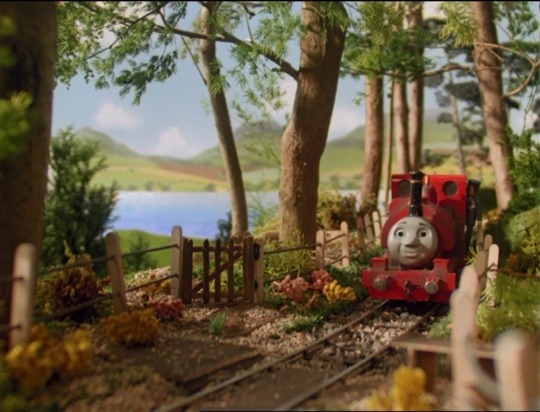
Skarloey became the first of the Island of Sodor’s tourist hotspots, especially due to its proximity to Culdee Fell and Saint Machan’s cave. The popularity of the spas was good for a time, but began to fall off as the bad fortunes of the Sodor & Mainland Railway continuously hurt the Skarloey Railway’s tourism campaign with delayed and cancelled trains, ratty carriages and even standoffish staff. This led to Skarloey becoming a local holiday destination instead, but even that began to slow down as WWII loomed.
On the other side of the island, the Mid Sodor Railway also began heavily advertising their railway to holidaymakers across the UK, but to a somewhat better result. The Isle of Man Steam Packet contract the railway picked up led to a large influx of tourists across the late 1800s and early 1900s, up until the 1920s. The railway’s ability to reach the walled city of Peel Godred and the cave of Saint Machan (via the Culdee Fell Railway) made it a very attractive destination for tourists, though this would change at the end of WWI.

The advent of relatively cheap international travel via ferries in the 1920s did a lot of damage to Sodor’s tourism economy, as their major markets in England preferred to travel to either the Continent or the Lake District – or even as far afield as the United States. Sodor instead switched to being primarily an agricultural and resource-extraction economy, with some manufacturing. This continued throughout WWII.
Which leads us to May 12th, 1945. The Three Railway Engines was published – in colour – in the UK. It achieved enough success to lead to the continuation of the series in 1946, and again in 1948, and then again continuously until 1972. These twenty-seven years’ worth of publicity for the island and its railways had a massive effect. Skarloey was rediscovered and the budget-conscience holiday maker of the 1960s chose it for its low prices, high quality, and picturesque scenery, turning around the railways needed to reach it. The Culdee Fell Railway also saw an uptick in traffic as the Peel Godred Railway brought in more passengers than the old Mid Sodor Railway had.
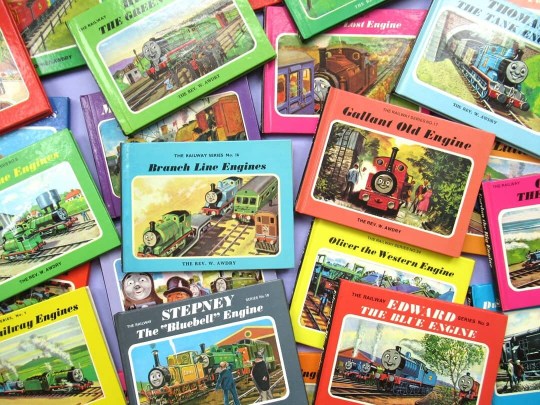
Furthermore, tourists came to see the engines, a phenomenon not seen before in the island’s tourism industry. Insignificant towns such as Dryaw, Brendam, Crosby and Glennock became infinitely more popular as the sites of incidents in the Railway Series, or as convenient locations to stay for travelling the island. The biggest success story of the island’s cities was Cronk however. Cronk grew massively from the tourism trade as the most central location on the NWR to reach the various tourist destinations of Sodor – even Awdry takes a moment to mention ‘The Crown of Sodor’ Hotel on Sigmund Street due to its prominence as a hotel on the island.
This large influx of tourists was however of a majorly local source – the UK, parts of continental Europe and a relatively low number from North America. It wasn’t until the advent of cheap international jetplane flights in the mid-1970s and the debut of the TV series on October 9, 1984.

This debut is what changed everything.
The Thomas and Friends Television series was an international success, with translations into a number of languages (eleven by Wikipedia’s count) and broadcast around the globe. This, coupled with the opening of an enlarged airport at Vicarstown (which had been constructed in 1941 by the RAF and expanded by Vickers in the 1960s. The airport itself had been bought by the NWR in 1982 (probably in anticipation of the TV series) and began receiving jetliners from across the world as early as 1986.
Today, Sudrian tourism is one of the largest income producers in northern England due to its international status crafted by the Thomas & Friends series. The island is a popular tourist attraction for both railfans and Thomas fans, as well as religious pilgrims, spa enthusiasts, hikers, ramblers and historians. The airport at Vicarstown has been linked into the NWR via a spur line, and more recently a number of signs on the island have been converted to include secondary and tertiary languages, for better interpretation.
Sodor reached its best numbers for international tourists in 2019, when over 1.5 million people visited the island, making it the third most visited tourist destination within England, beating out Birmingham. The secret to it’s recent further uptick in visitors is the opening of a number of museums, galleries and other cultural sites on the island, as well as a strong advertising campaign that focused on the island’s major tourist draws, which are:
The North Western Railway, Skarloey Railway, Culdee Fell Railway and Arlesdale Railway from the Railway Series book and subsequent Television series
A pre-Norman era Abbey at Cronk, one of the oldest of its kind in Britain
Suddery Cathedral, which continues to be one of the few remaining pre-reformation cathedrals in Britain
Several Norman-era castles, including a completely intact castle at Harwick
The Walled City of Peel Godred
The caves of Saint Machan
Culdee Fell
Henry's Forest National Park
Skarloey and its spas
Museums, galleries, and cultural centres
The Standing Stones of Killdane.

This advertising campaign brought a greater variety of tourists to the island, especially those from North America.
The island was badly affected by the advent of the Coronavirus pandemic, which saw the high tourist numbers of the previous decade prop by over eighty percent, which forced the island to once again consider restructuring their economy around agriculture, manufacturing, and resource extraction. This eventually was decided against, as tourist numbers have slowly picked back up through 2022.
Sodor has been greatly affected by its rise to one of the most prominent tourist destinations in the UK, including a number of hotels being built on the island – many of which are converted manorhouses – as well as several upgrades made to the transport systems of the island, with updated ferry services between the island’s major ports and locations in the UK and Ireland, as well as the railway building a special line to the island’s main airport, new tram and bus services within the major cities on the island. The island’s railway system has also seen upgrades throughout the latter half of the 20th century, including a third track being added to the mainline, new signalling systems and a number of extra connecting services to cities in the UK, such as Manchester, Birmingham, Carlisle and Preston.

Sodor has grown drastically as a result of its tourism industry and is today an international tourism hotspot. The island continues to be popular into the modern day, as a result of strong advertising and a pointed diversification of tourist offerings on the island to help the island’s tourism industry grow and bring in profits for the island’s people.
Back to Master Post
#fanfiction writer#weirdowithaquill#railway series#thomas the tank engine#railways#RWS analysis#Thomas and friends analysis#island of sodor#tourism#mid sodor railway#skarloey railway#traintober 2023#traintober
32 notes
·
View notes
Text
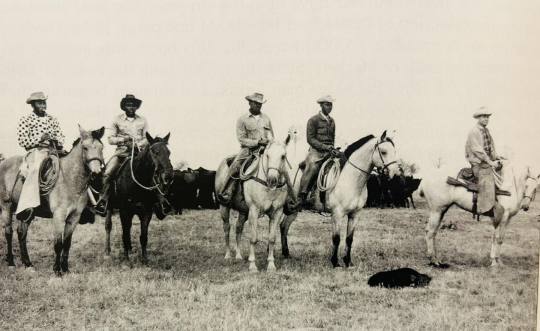
Photograph of the regular monthly hands on the George Ranch. Five cowboys on horseback - four of them African-American cowboys - watch over a calf nestled in the grass in front of them. The rest of the herd of cattle can be seen in the background. The top of a windmill is visible near the center background. Bottom of photograph in border printed in black: "The Harper Leiper Company Photographers". Back of photograph written in black identifies cowboys: "Left to right Johnny Hudgins, Henry Klazer, Buster Jackson (Joe B. Forman), Frank Simpson - cook, Joe Bingum, Regular monthly hands". Also on back stamped in blue: "KE - 1293 The Harper Leiper Company Photographers (Photographers stamp) 1009 Isabella at Main Houston, Texas Refer to Neg. No 5734 [circled and written in blue ink] 3" Source: University of North Texas Libraries
[Photograph of five cowboys on horseback - four of them African-American], photograph, [1940..1955]; (https://texashistory.unt.edu/ark:/67531/metapth7805/: accessed February 26, 2024), University of North Texas Libraries, The Portal to Texas History, https://texashistory.unt.edu; crediting George Ranch Historical Park.
“Most cowboys in Fort Bend County were African American from the late 1800’s into the mid 1900’s. Buster was said to be the finest horseman anyone had ever seen.” Source: Rosenberg Today
Visit www.attawellsummer.com/forthosebefore to learn more about Black history.
Need a freelance graphic designer or illustrator? Send me an email.
#cowboys#cow hand#Black cowboys#Fort Bend County#Texas history#George Ranch#Texas#Black history#Cowboy Carter#Black cattlemen
15 notes
·
View notes
Text
Kinda both love and hate currently owning a book so obscure I can literally find no information about the book itself or the author.
It's called Belevenissen met dieren uit de jungle (Dutch) by Tjebbe Franken and is about the experiences someone (presumably the author but not made explicitly clear) had living with wild animals in various jungles, mostly in Java. It's not a very good book and involves a lot of painful-to-read animal abuse but I am honestly far more fascinated by what's going on behind the book, not the book itself.
Thing is, there is practically no information on this book out there. I could find a few now-defunct secondhand listings and one from a Dutch library (also defunct, it appears they no longer own the book), but there's no publication date or year, no information on the author, nothing on the publisher, basically nothing out there that gives me any more information than the book itself does (which is little, it barely lists any information inside other than the main text).
I did find one mention on a Dutch war history site for a guy who was involved with WWII with the same name as the author, but I very much doubt they're the same guy. But again I have no real time frame to look for because this book has no publication date. There's also another guy named Tjebbo Franken (with an O) but again this is not my guy.
So yeah this is kind of a reverse lost media situation where I own the media itself (bought it on a secondhand book market with no context) but I do have a dozen questions about where it came from, who wrote it, what happened to the author, when it was written, when the events in the book itself happened, was it published in another country in another title first, why is the publisher so vague and does it have no information on it out there, are the experiences in the book those of the author himself or of another guy he interviewed? Questions, questions and more questions.
If I could hazard a guess I'd say the book was written in the late 1800s to mid-1900s (largely due to the absence of some modern technology) and the experiences written about are those of the author himself, who was presumably a Dutch guy living in Java (then part of the Dutch East Indies, fuck colonialism btw) who also visited other areas of the world. It's all still very vague but this is the closest guess I have based on the text of the book itself.
9 notes
·
View notes
Note
If you’d like to rant about why students saying “the 1800s” bugs you, I’d love to read it! (I’m not a historian and have no idea if this is a factual error thing or if its just annoying) If not, please ignore this message👍🏼
It's two things, but mostly incorrect in a way that annoys me personally. For context, I'm grading the section of the exam where they are asked to identify specific events or concepts and explain why they're significant.
As a formatting note, the "1800s" looks bad and it is usual practice to write out "the nineteenth century" with words. But this is a hand-written exam so I understand that it's a shortcut.
The bigger problem is that it is not at all specific as an answer. If a student says that a historical figure "was from the 1800s" they could be talking about the Napoleonic wars or late Victorian England. It's like saying WW2 ended in "the mid 1900s" in that it doesn't actually show me that you know when this happened. And for an exam where they're supposed to be specific, that's incorrect. I need a year or at least a decade.
The reason it annoys me more personally is that I'm a historian of nineteenth century Europe (my dissertation is on the 1850s and 1860s), so I am painfully aware of exactly how much happened in that century. I know how different the beginning and end are, and seeing students compress it into one homogeneous time period pains me.
7 notes
·
View notes